Brain Model
1/43
There's no tags or description
Looks like no tags are added yet.
Name | Mastery | Learn | Test | Matching | Spaced |
|---|
No study sessions yet.
44 Terms
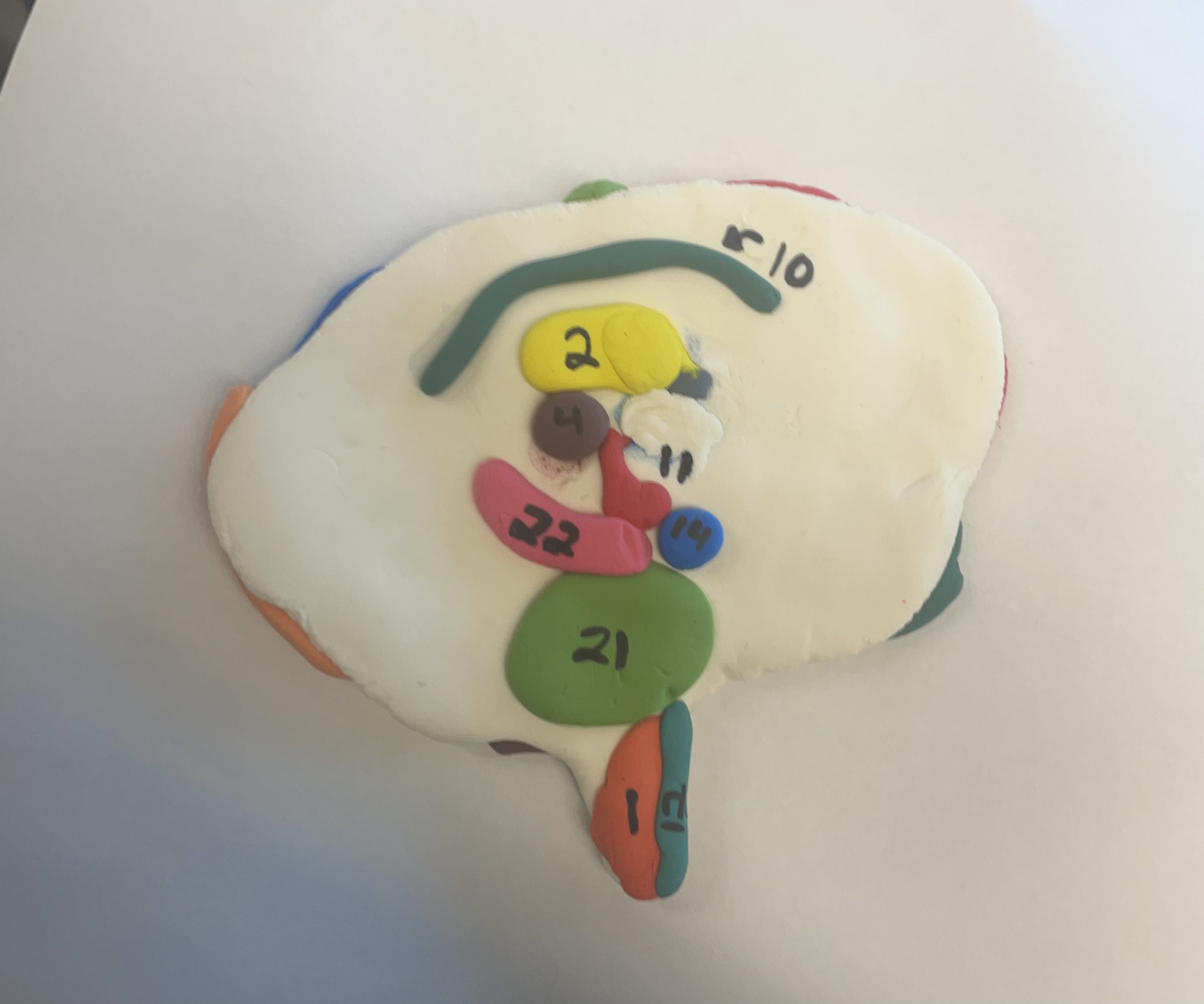
Medulla
1
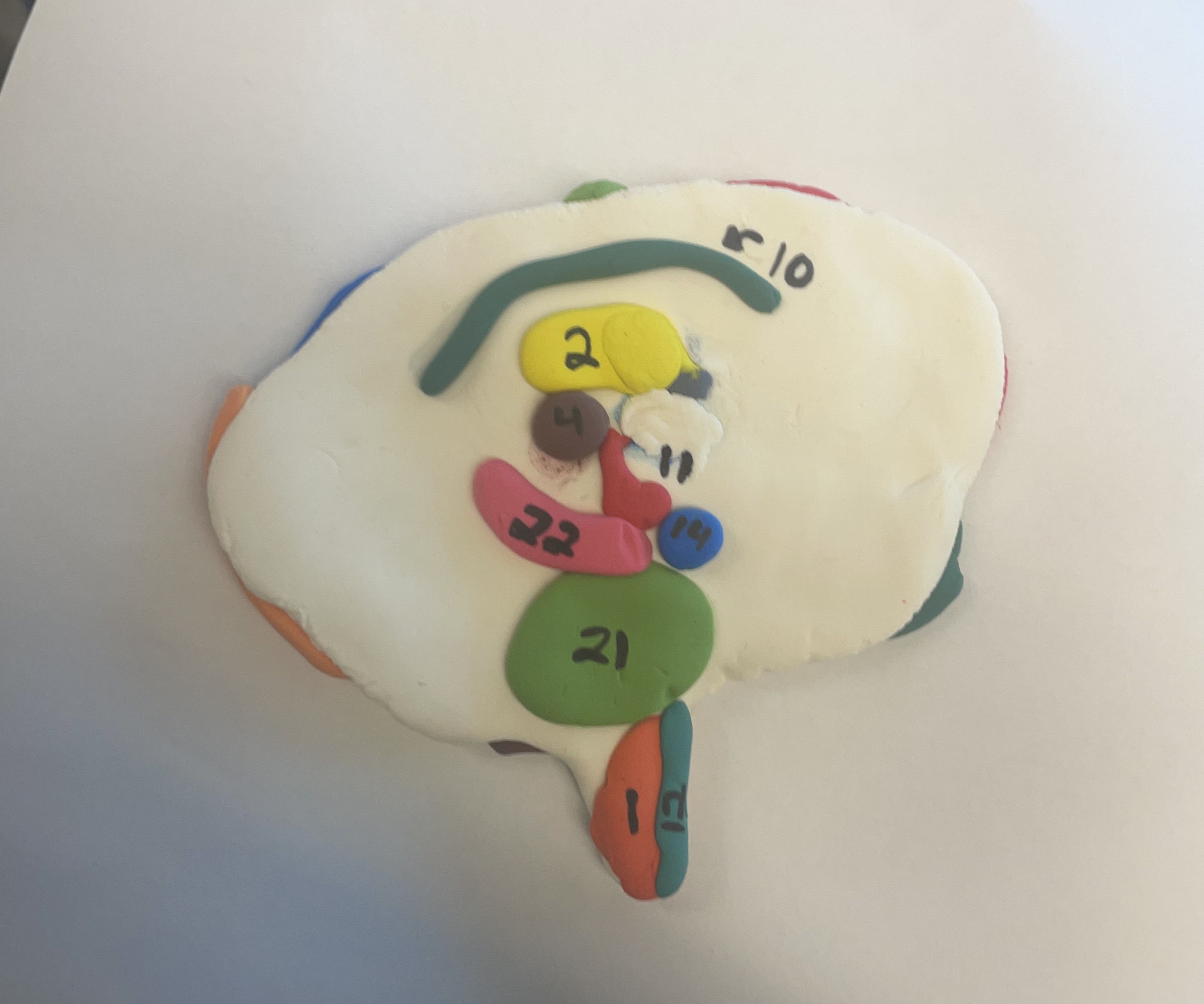
Medulla
controls heartbeat and controls sleep
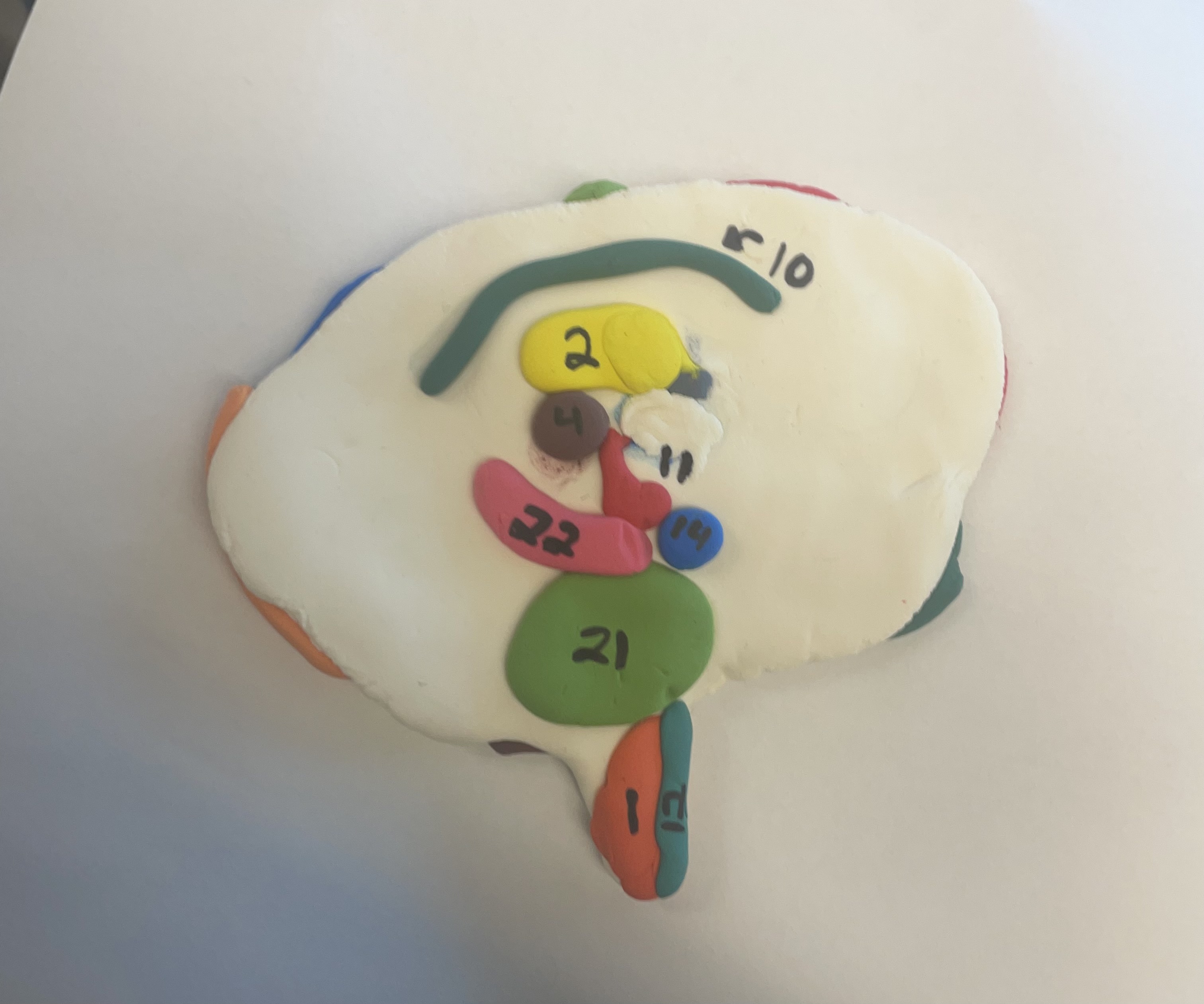
Thalamus
2
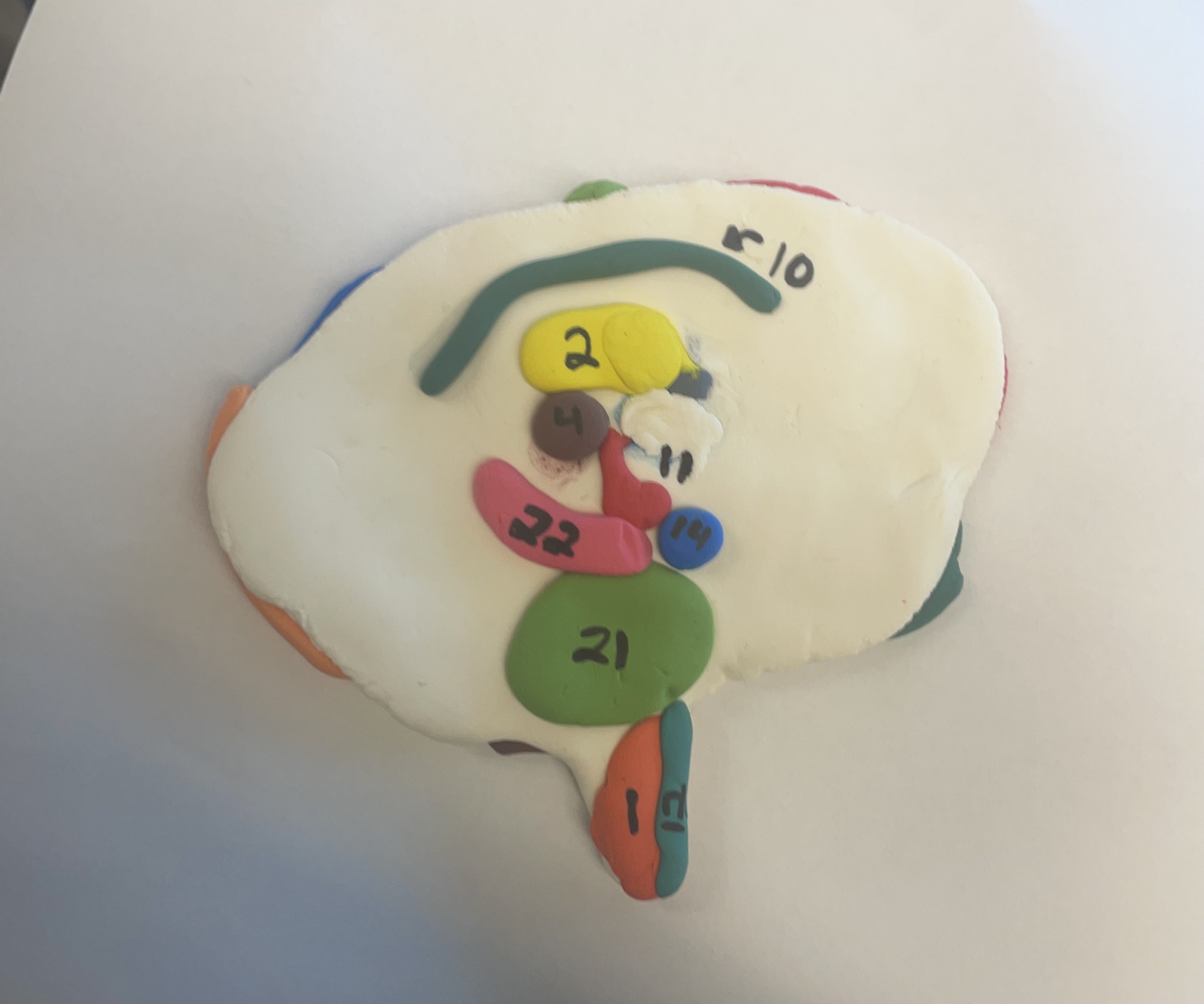
Thalamus
Sensory control center, directs messages to the sensory receiving areas in the cortex and transmits replies to the cerebellum and medulla
Limbic System
Hippocampus, Amygdala, Hypothalamus
process and regulate emotion and memory while also dealing with sexual stimulation and learning
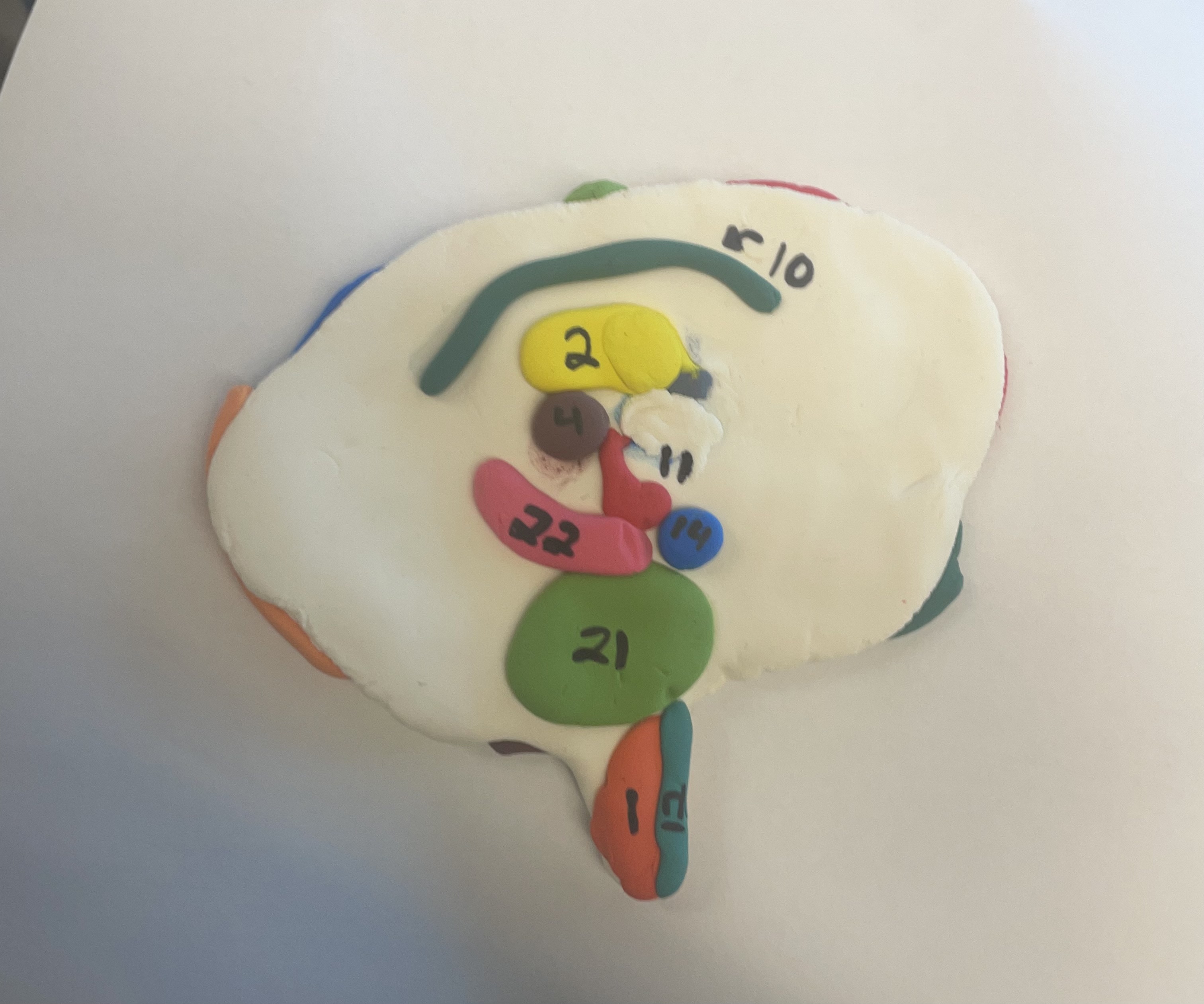
Limbic system
22 - Hippocampus
14 - Amygdala
4 - hypothalamus
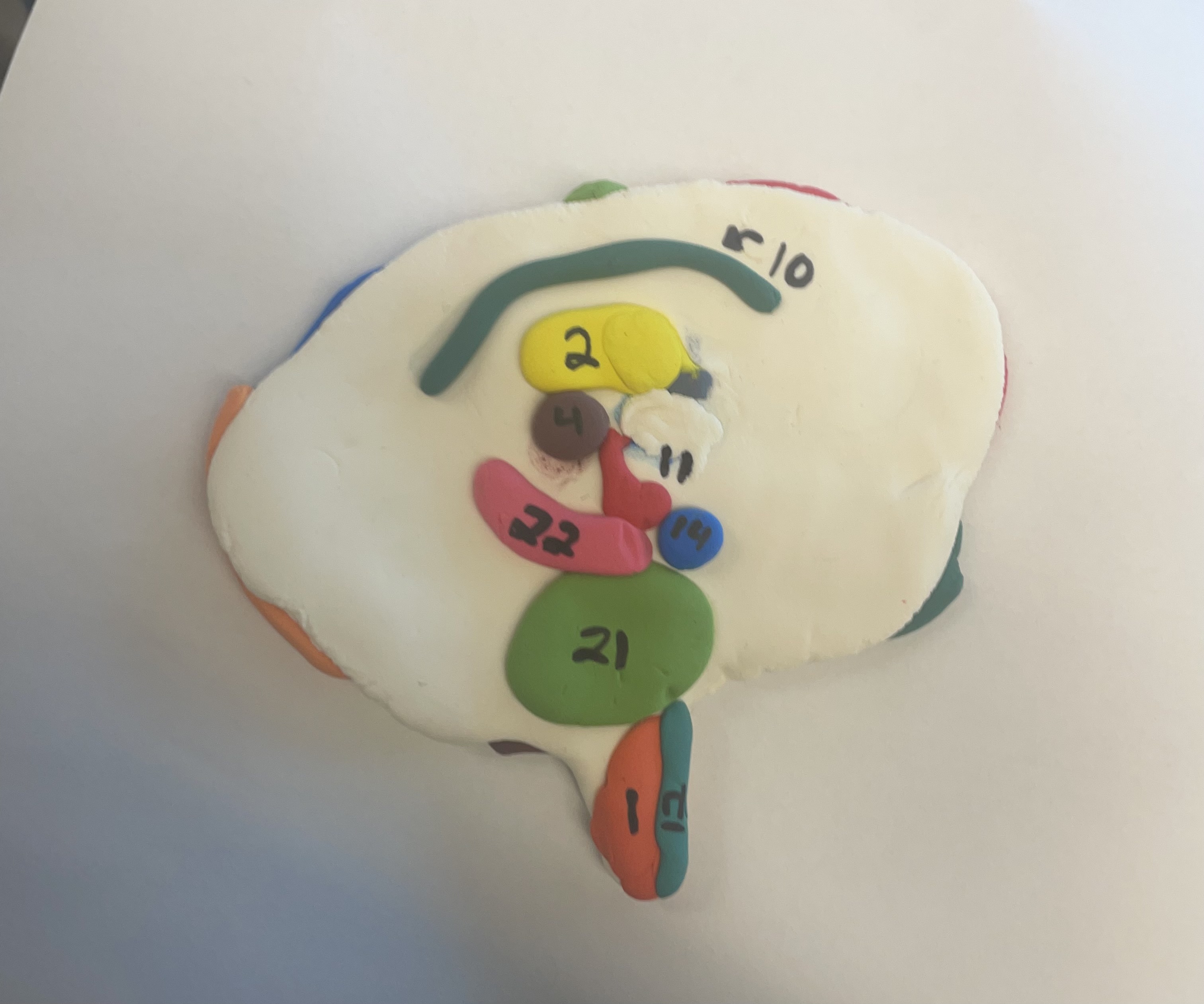
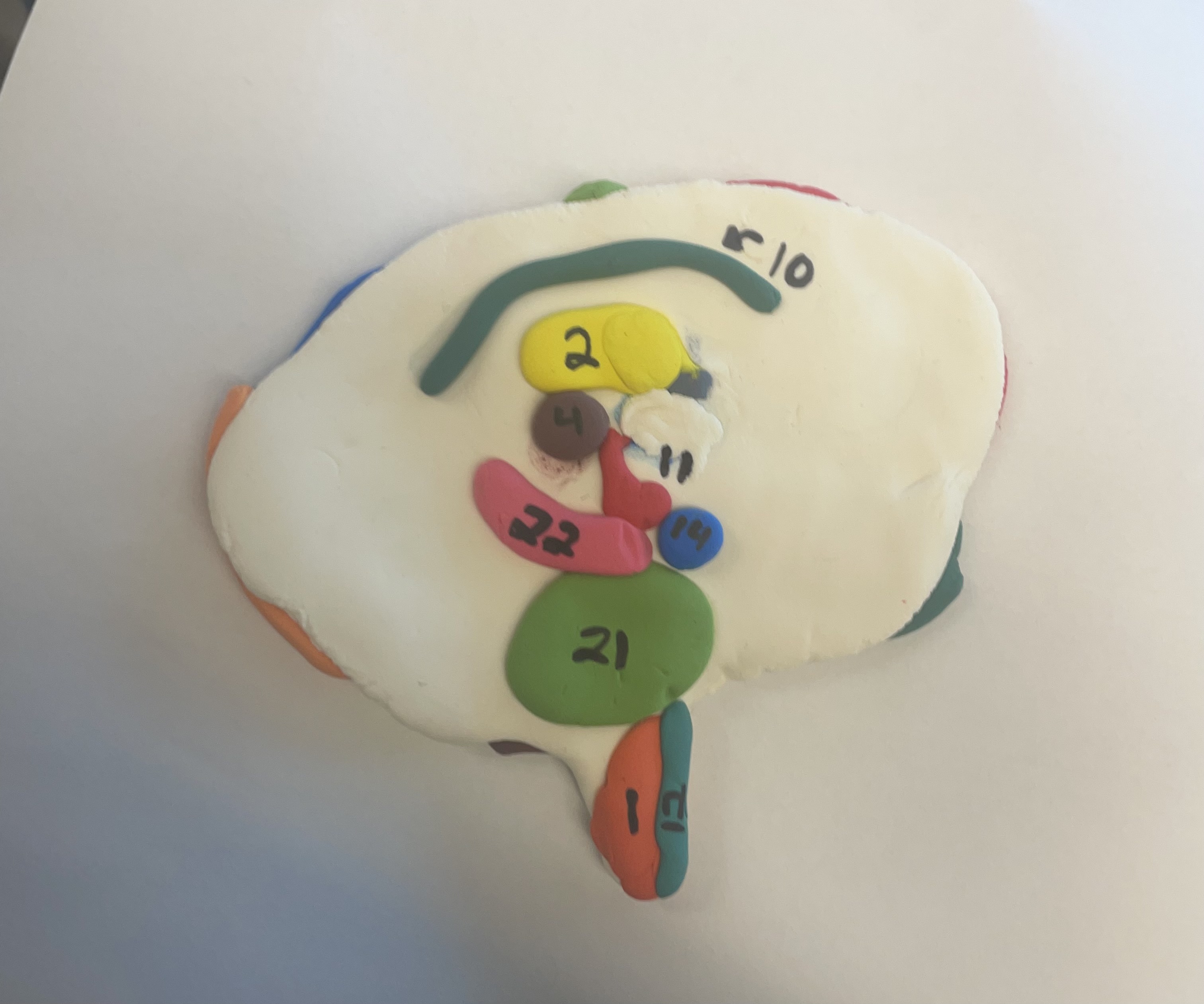
Hypothalamus
4
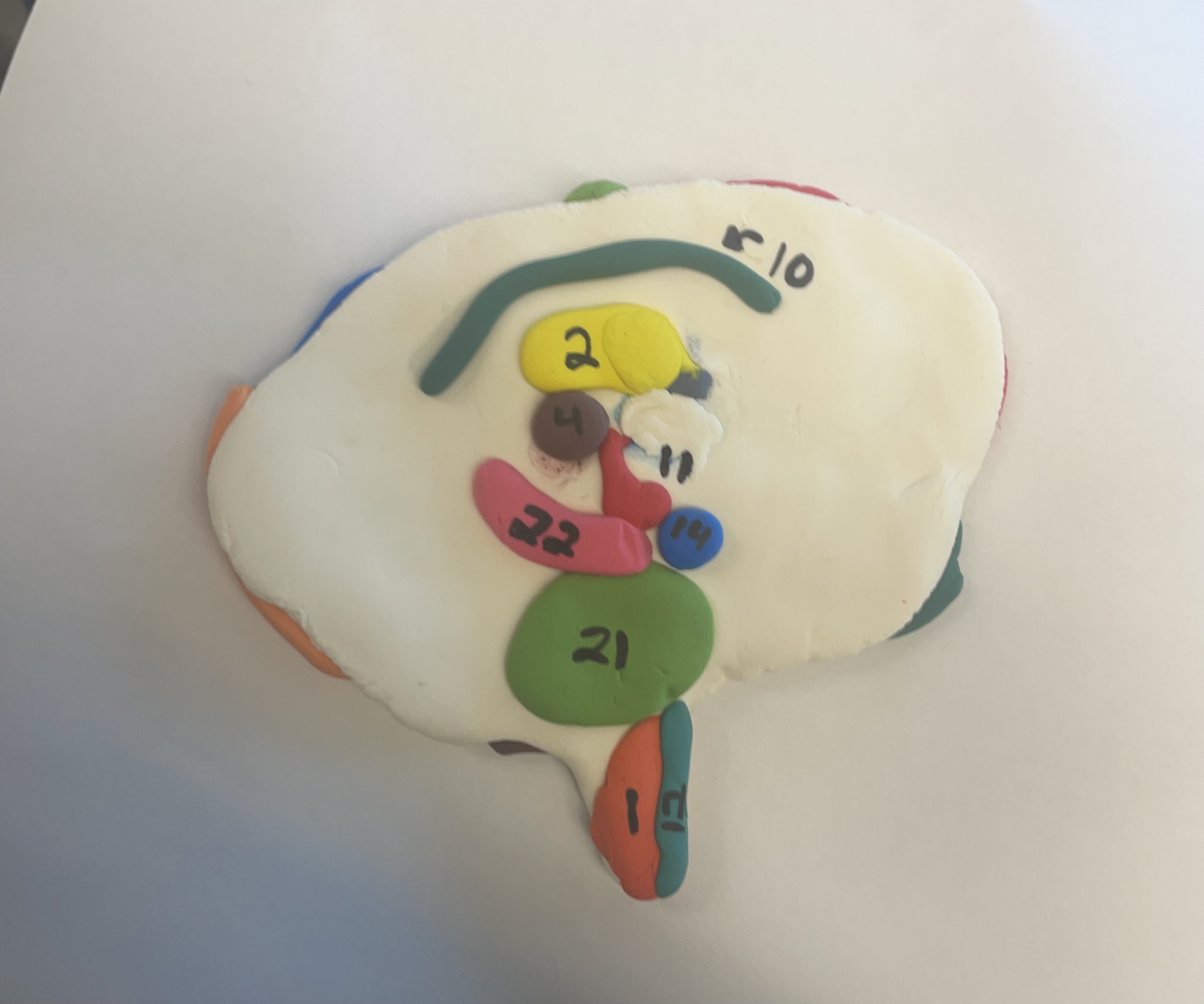
Hypothalamus
Directs maintenance activities (ex, eating, drinking, body temp, heart rate)
helps govern the endocrine system
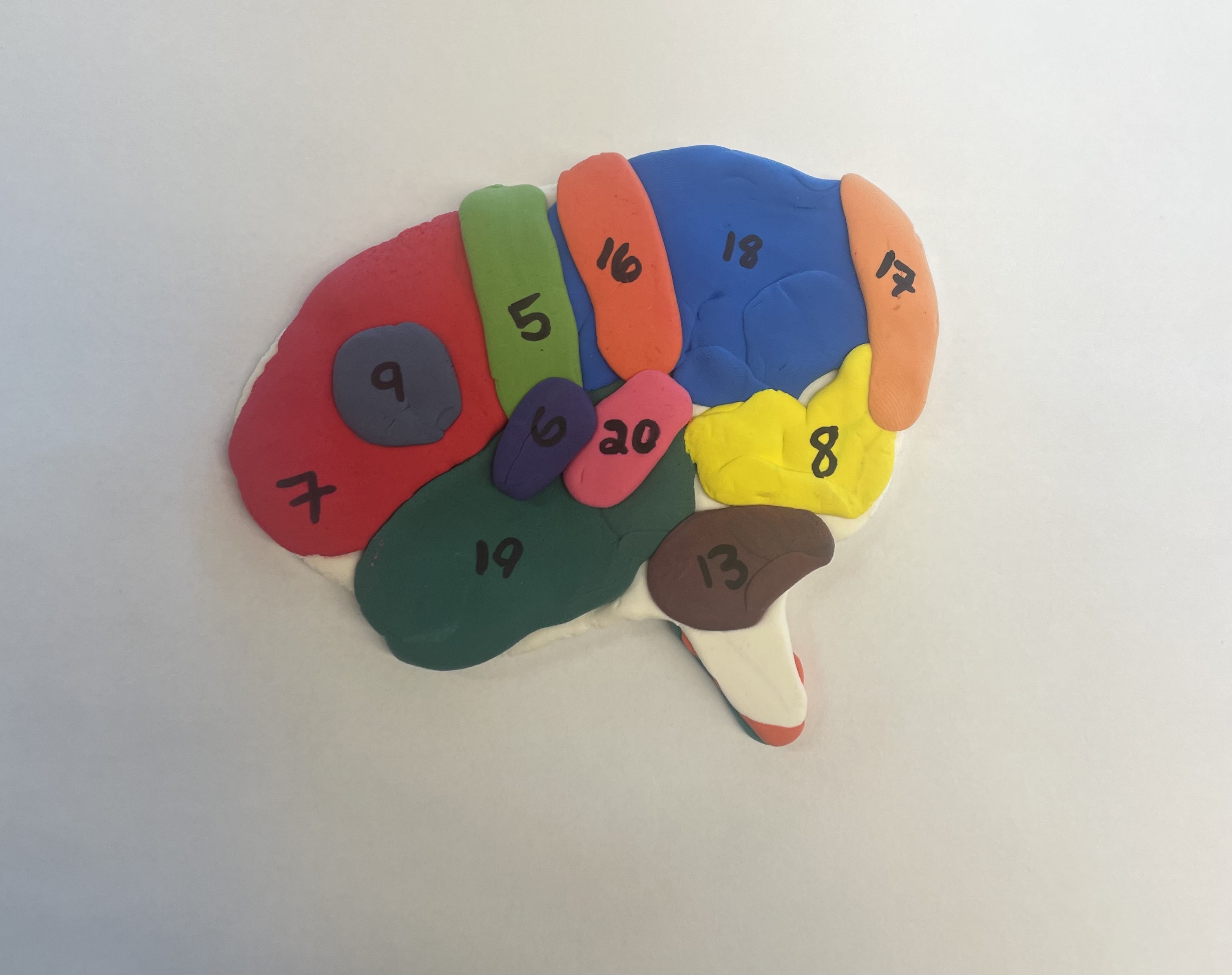
Motor Cortex
5
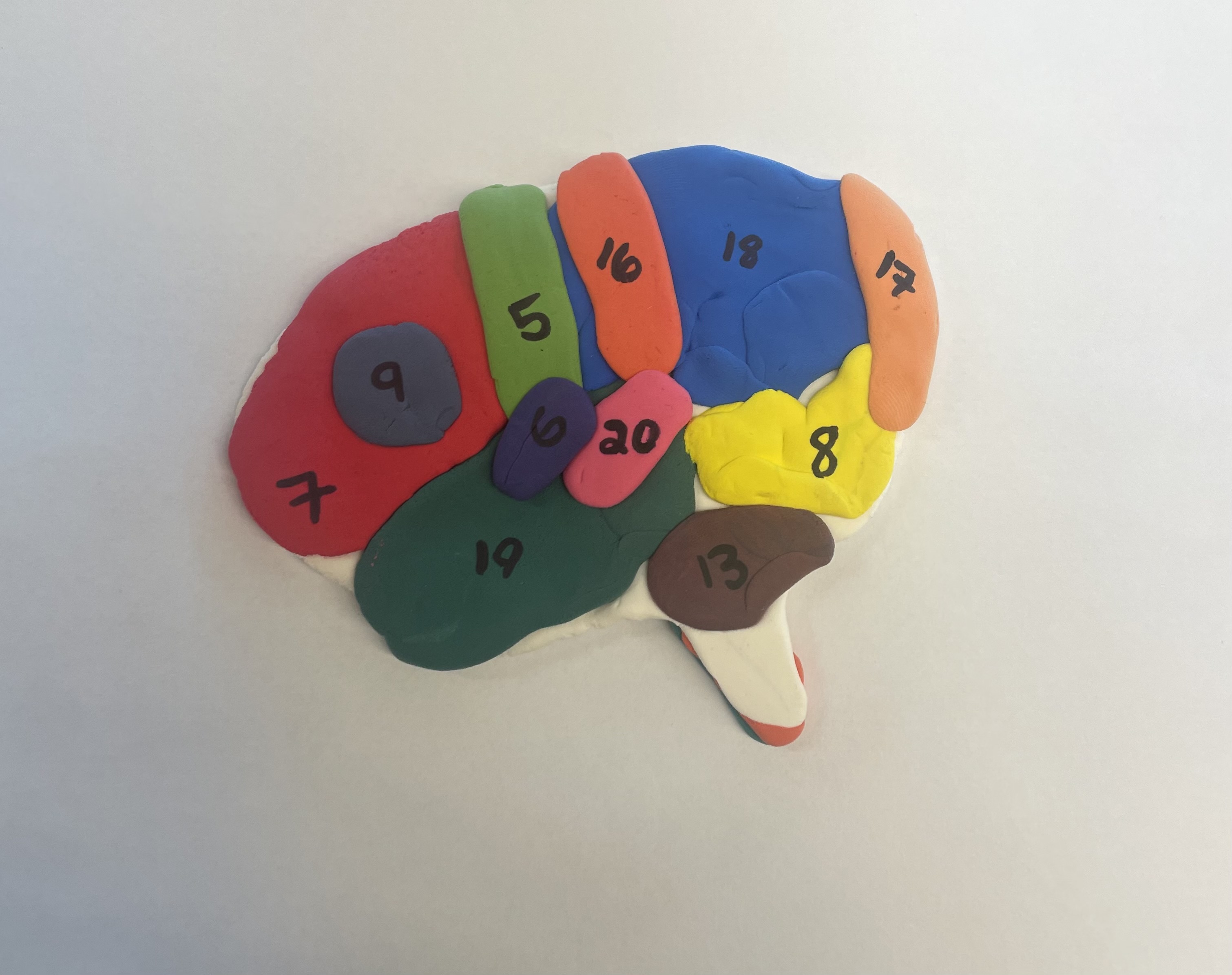
Motor Cortex
Controls voluntary movements
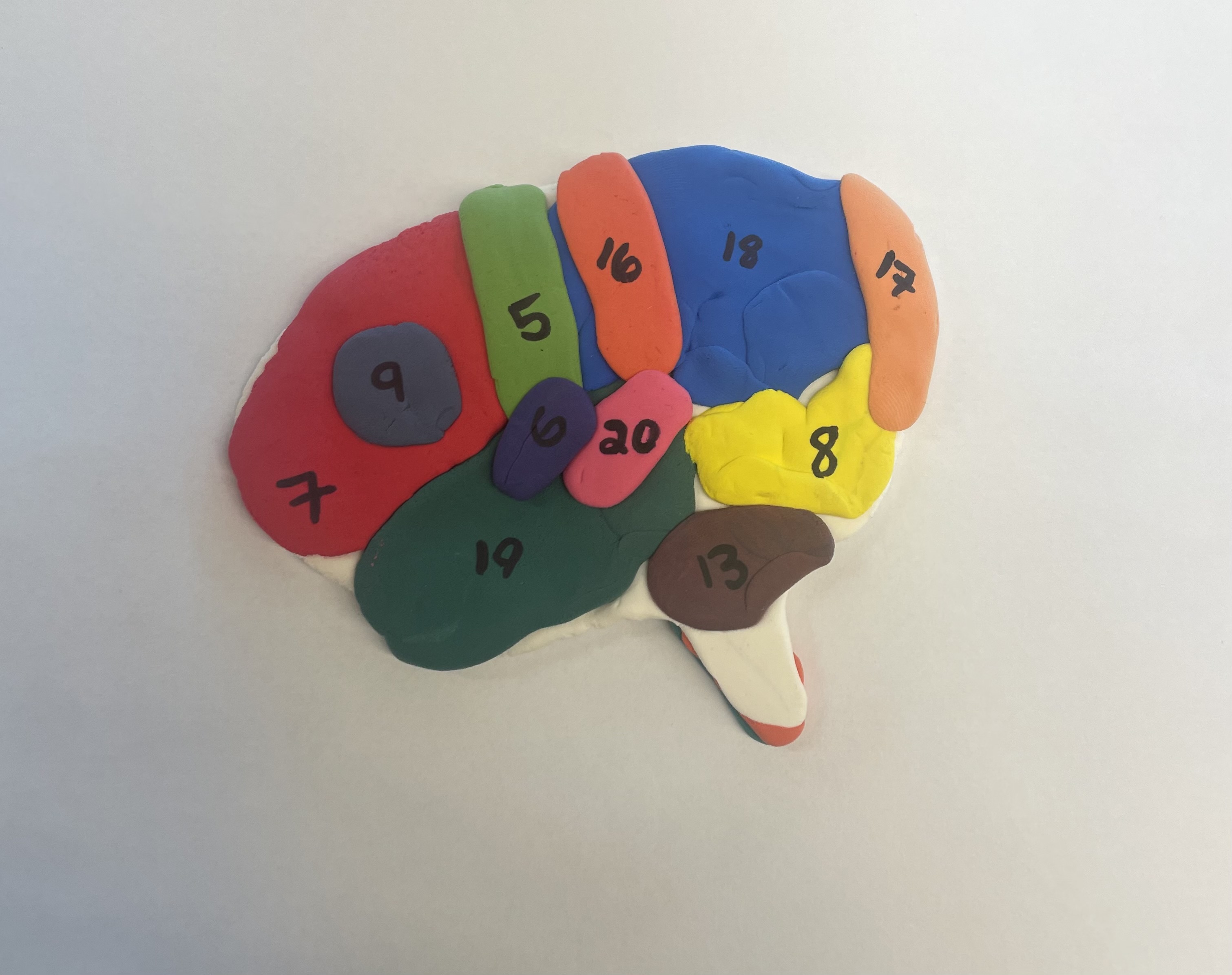
Auditory Cortex
6
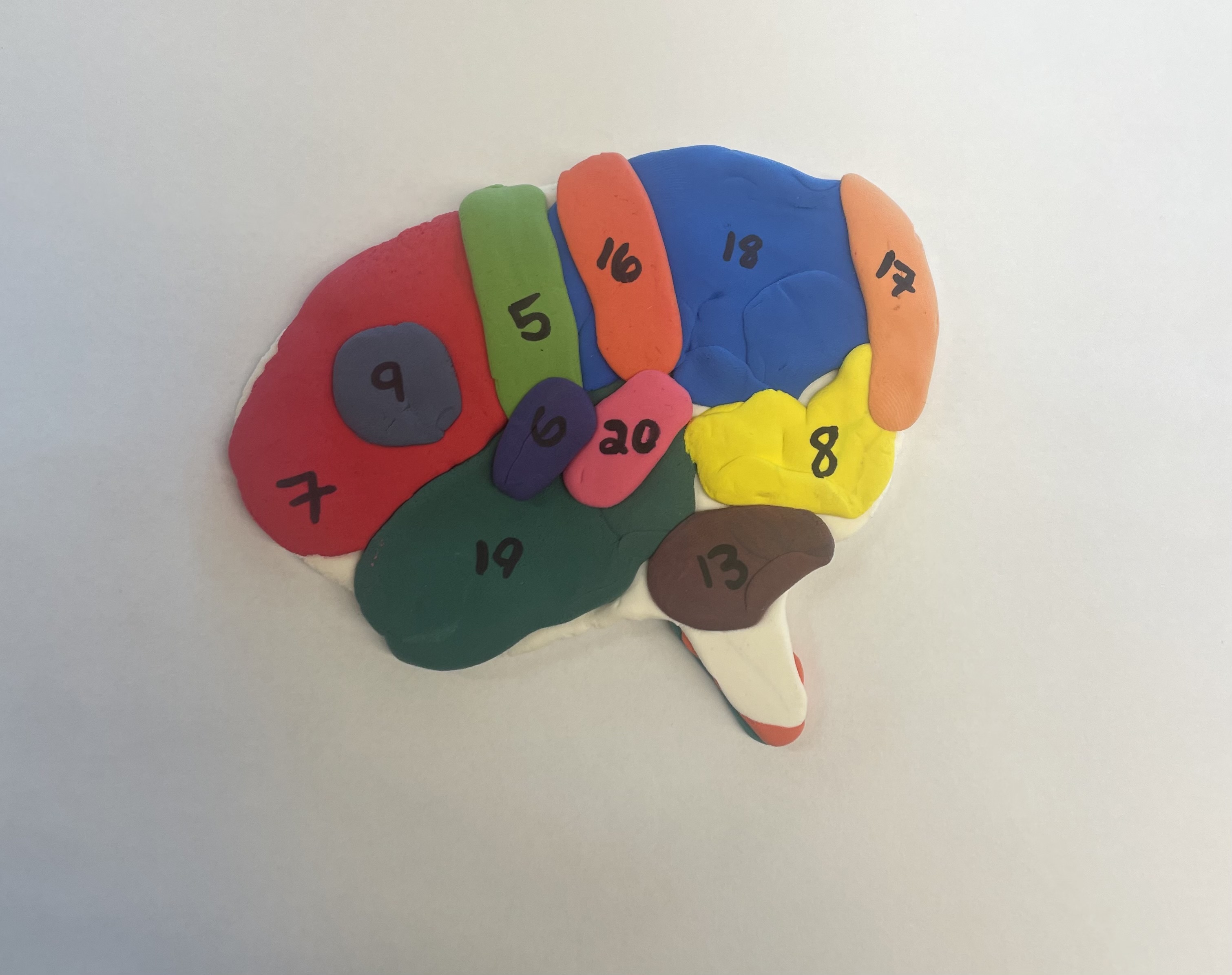
Auditory Cortex
Process auditory information (ex. elementary speech sounds and music)
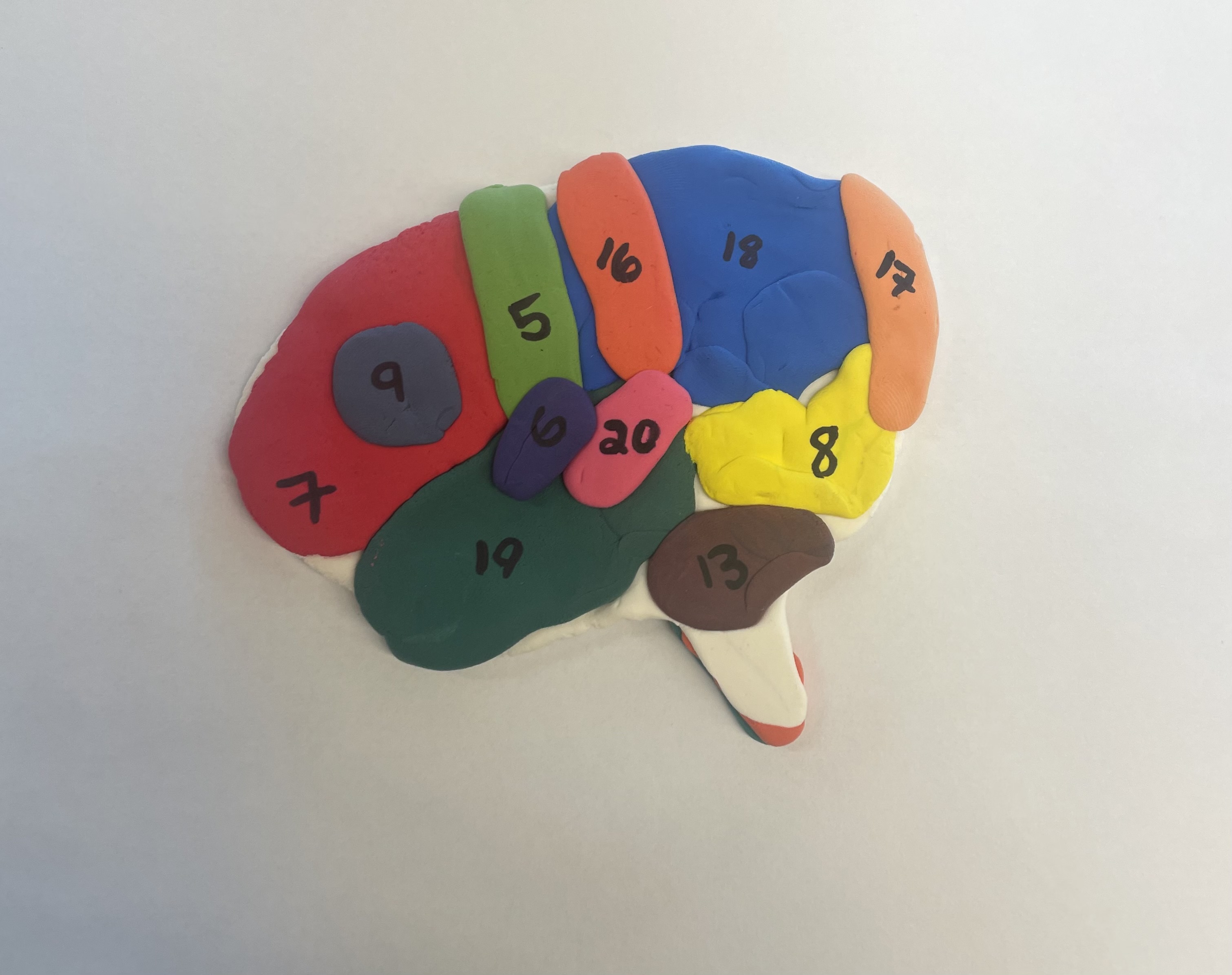
Frontal Lobe
7
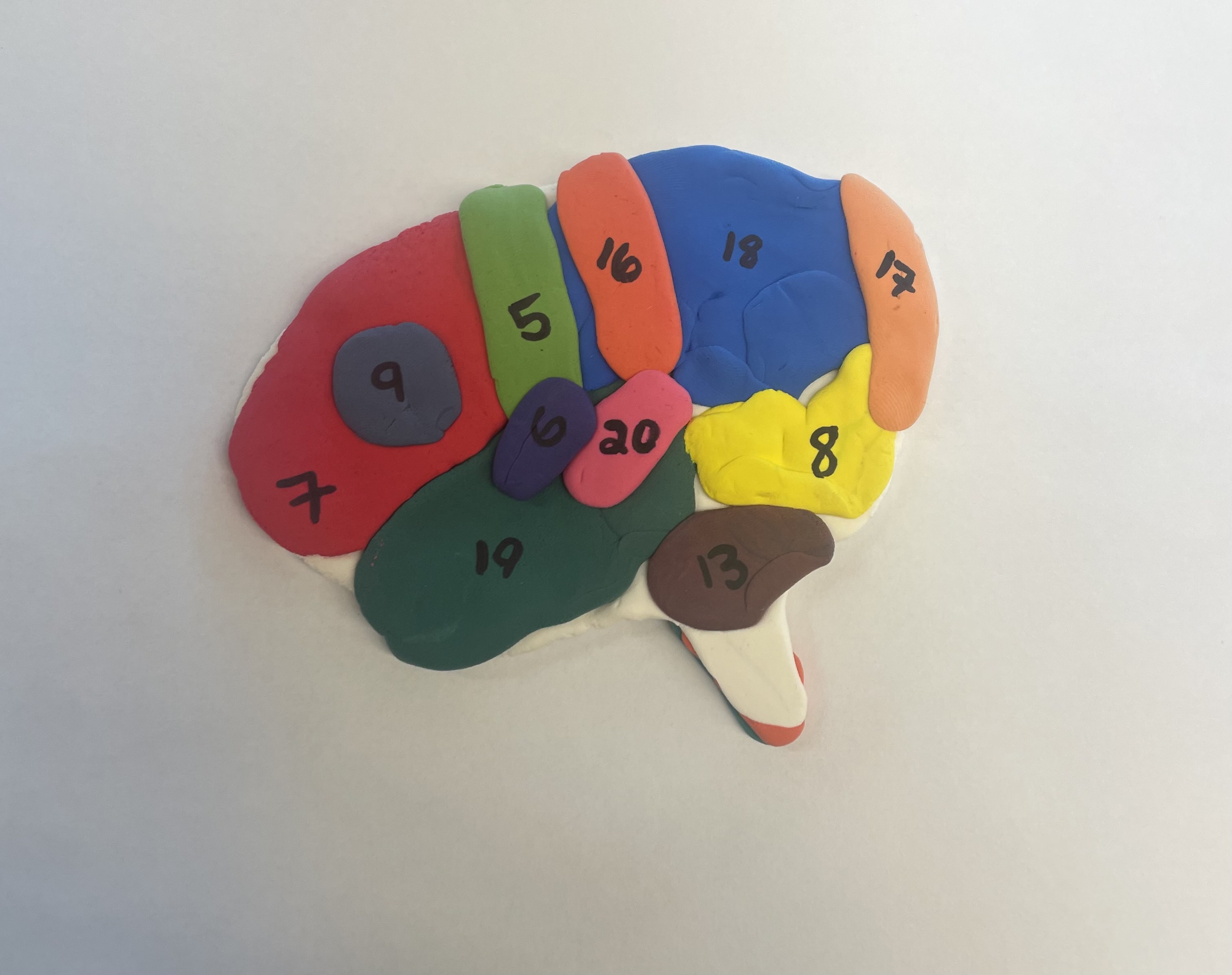
Frontal Lobe
involved in speaking, muscle movements and in making plans and judgments
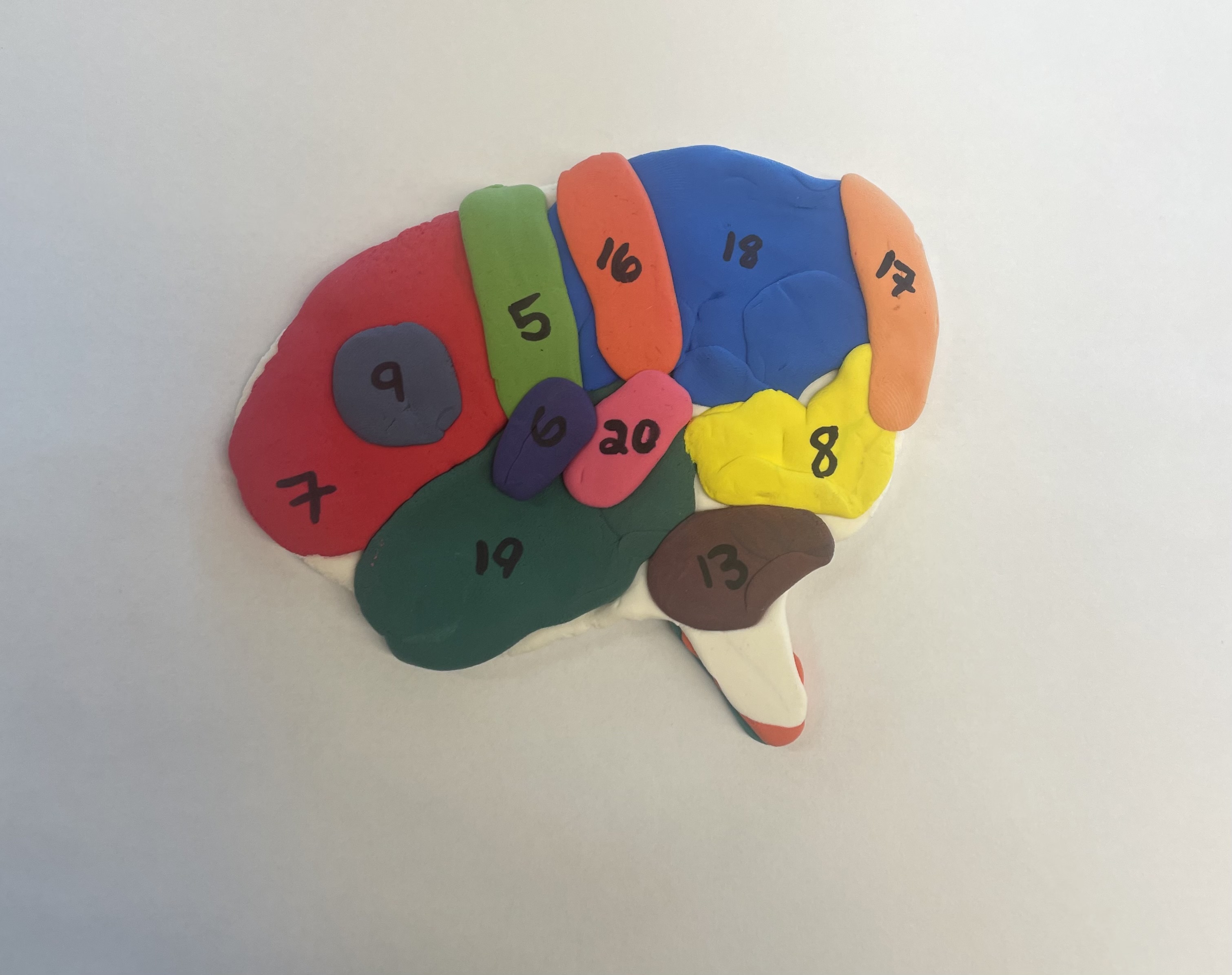
Occipital Lobe
8
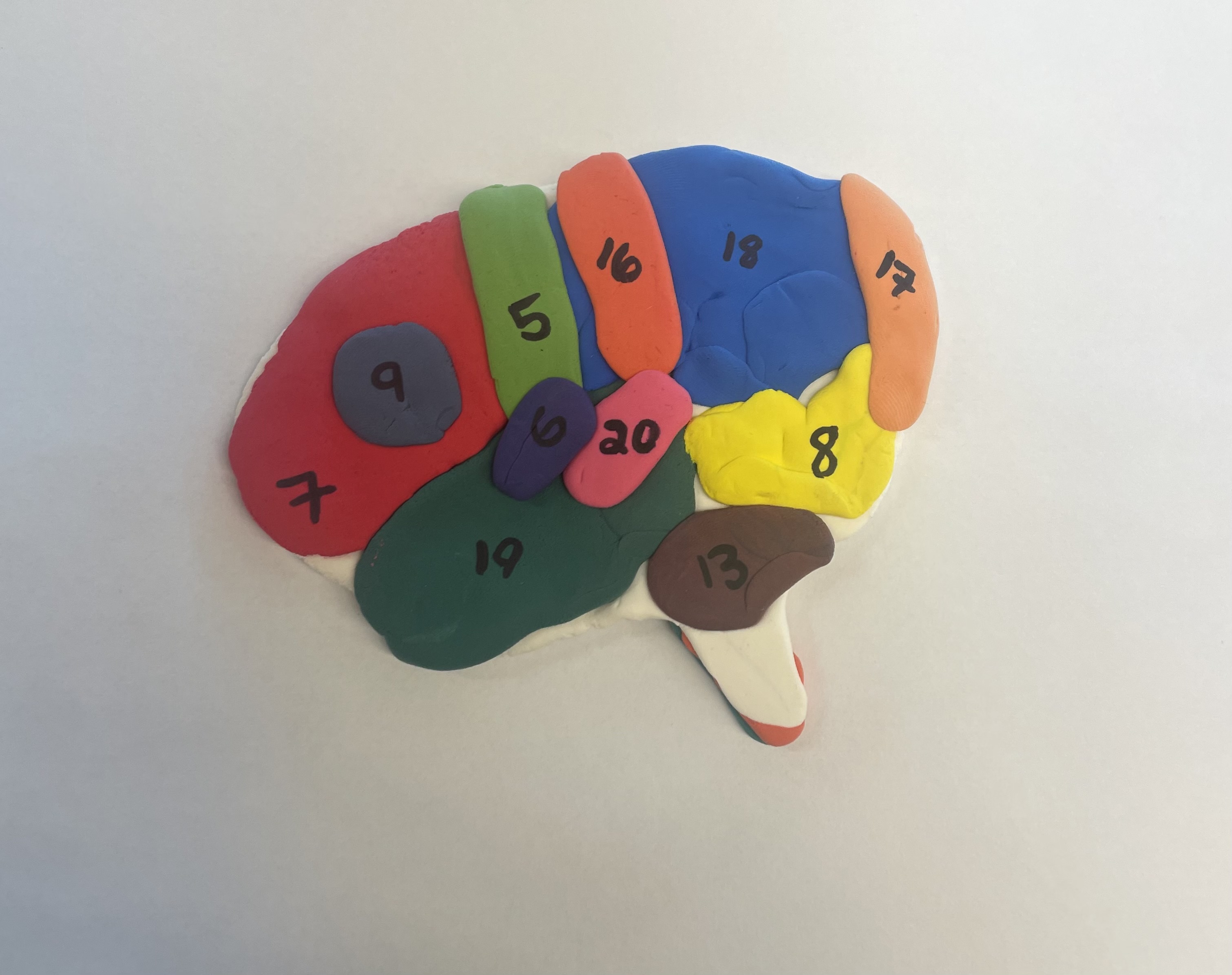
Occipital Lobe
receives information from the visual fields and assists in memory formation
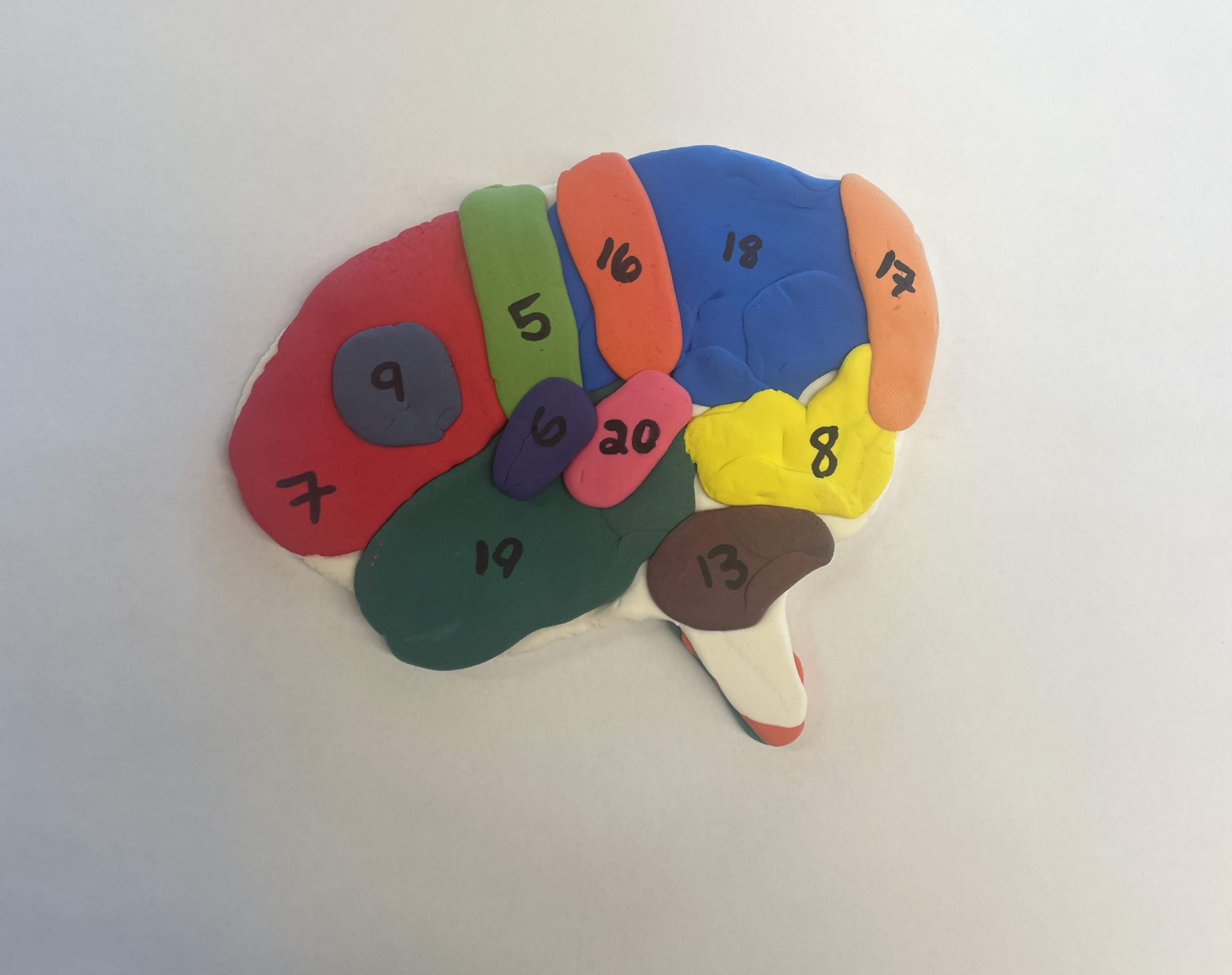
Broca’s Area
9
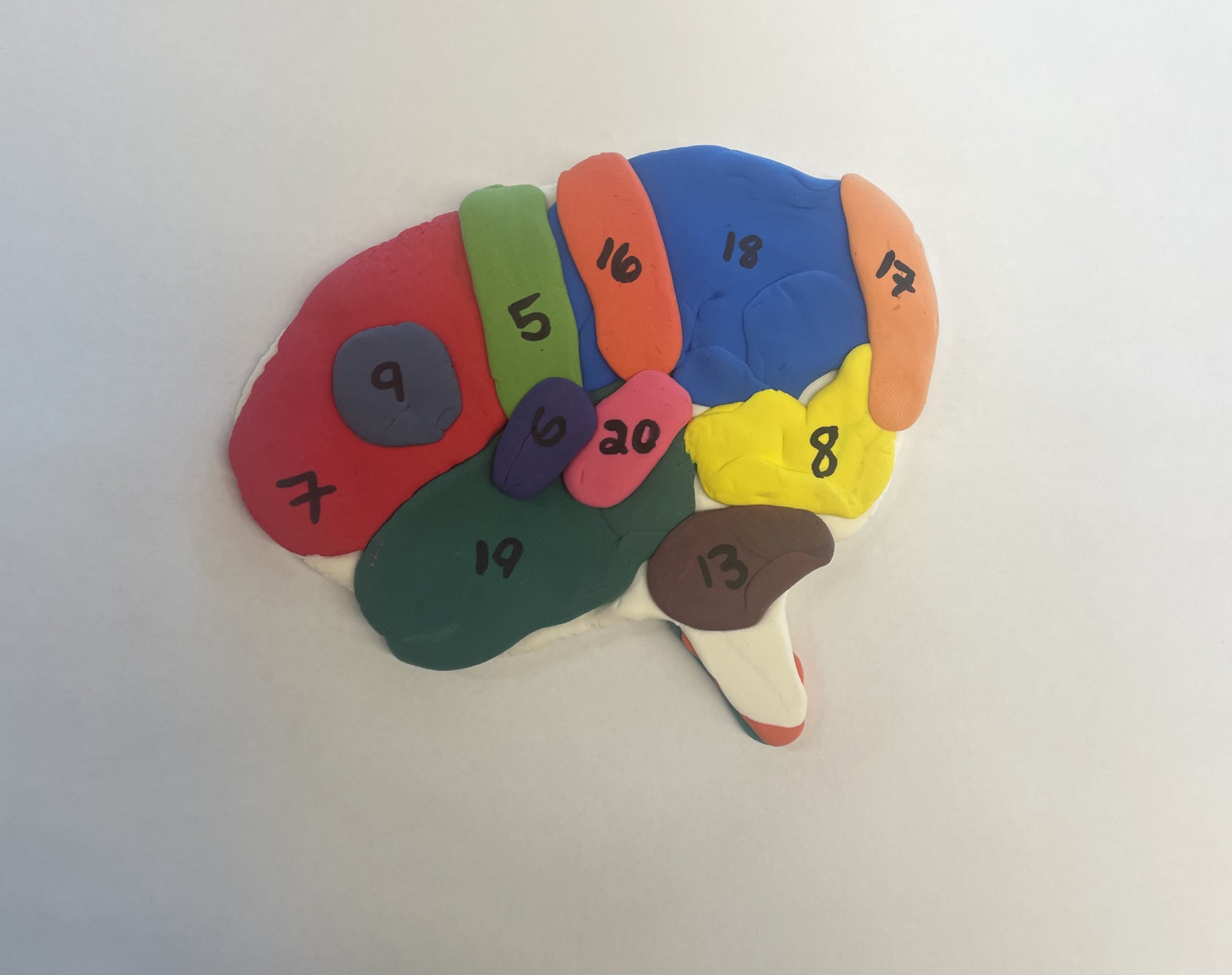
Broca’s Area
Controls language expression, directs the muscle movements involved in speech
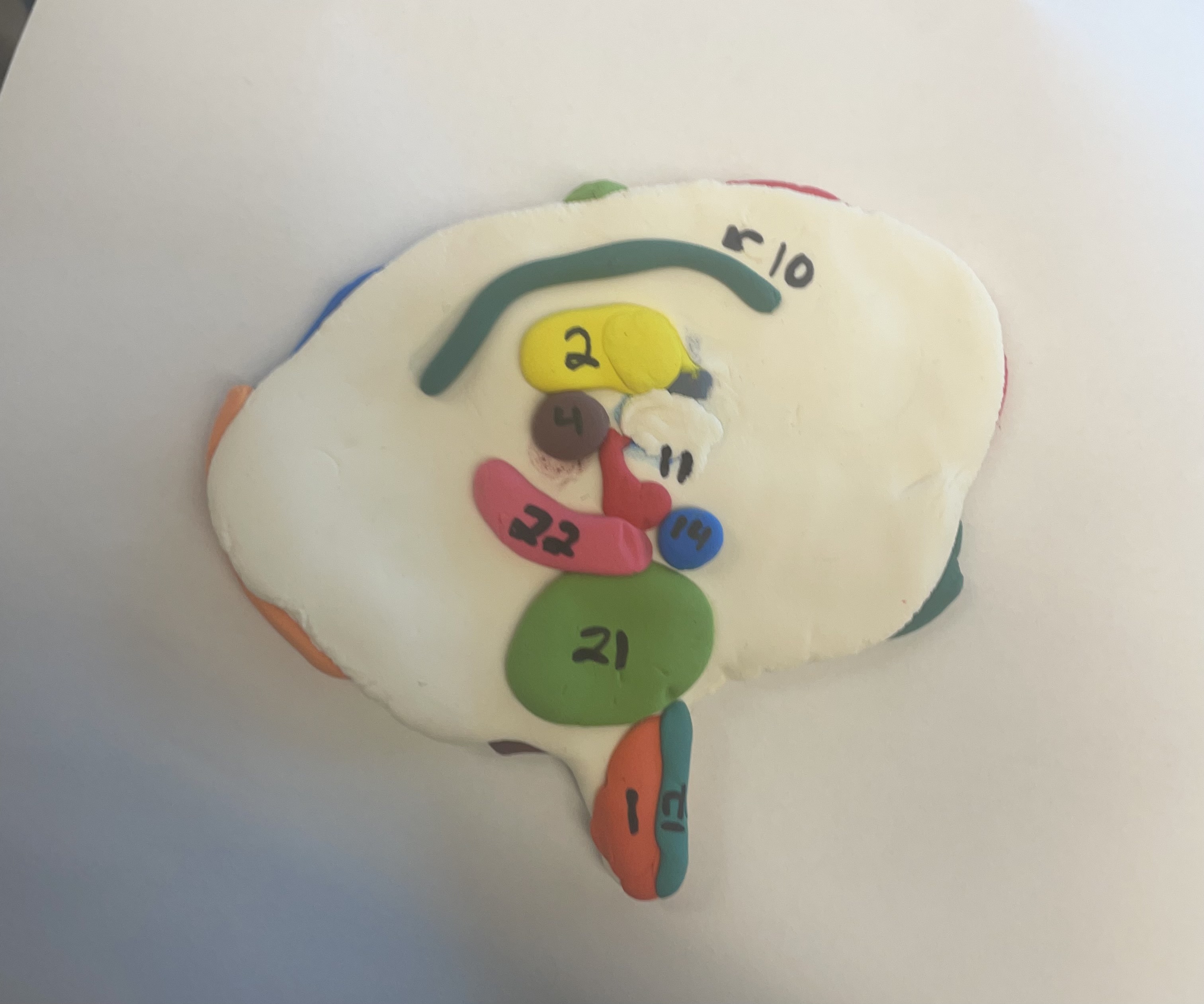
Corpus Callosum
10
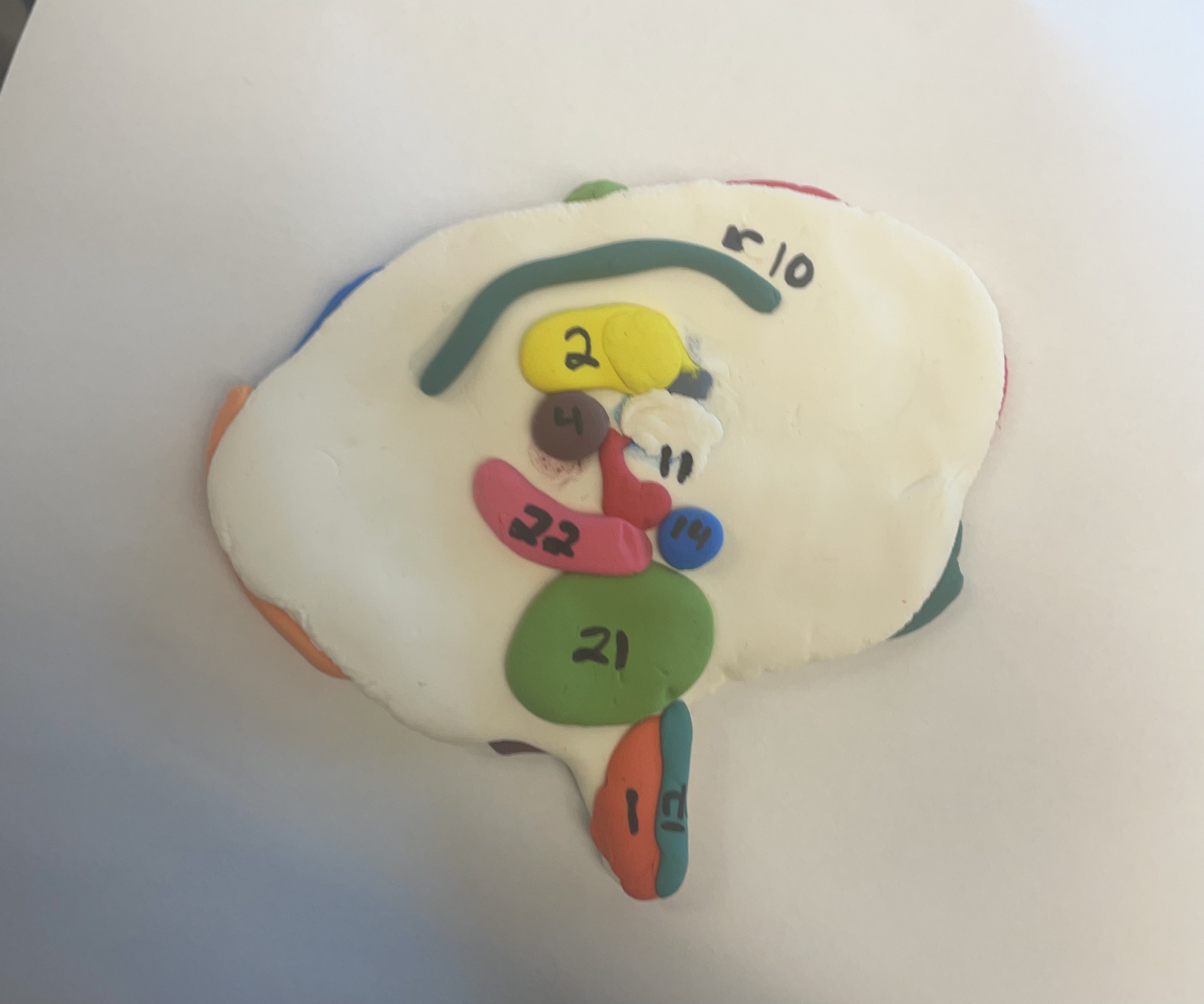
Corpus Callosum
Connects the left and right hemispheres of the brain so they can communicate
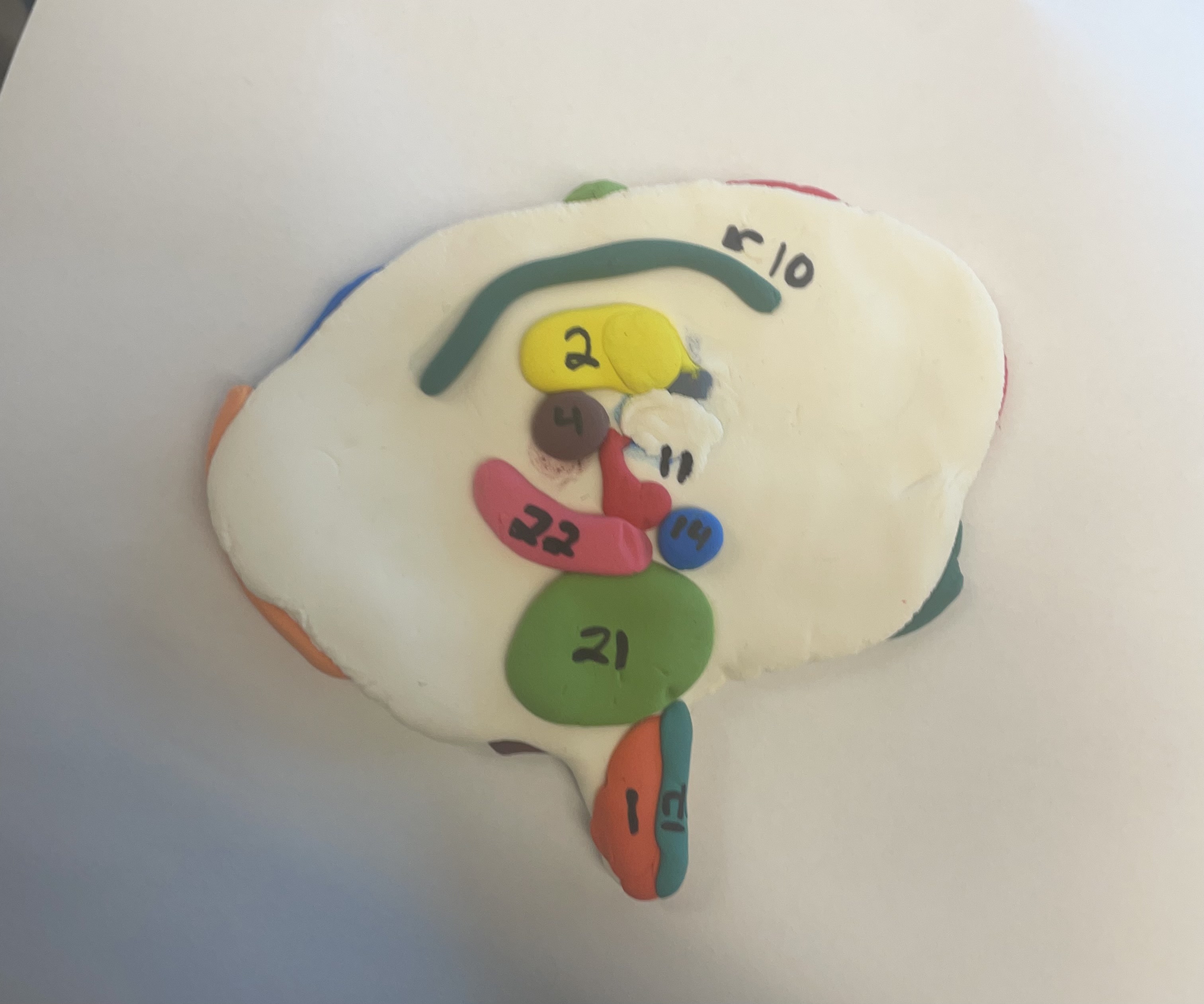
Pituitary Gland
11
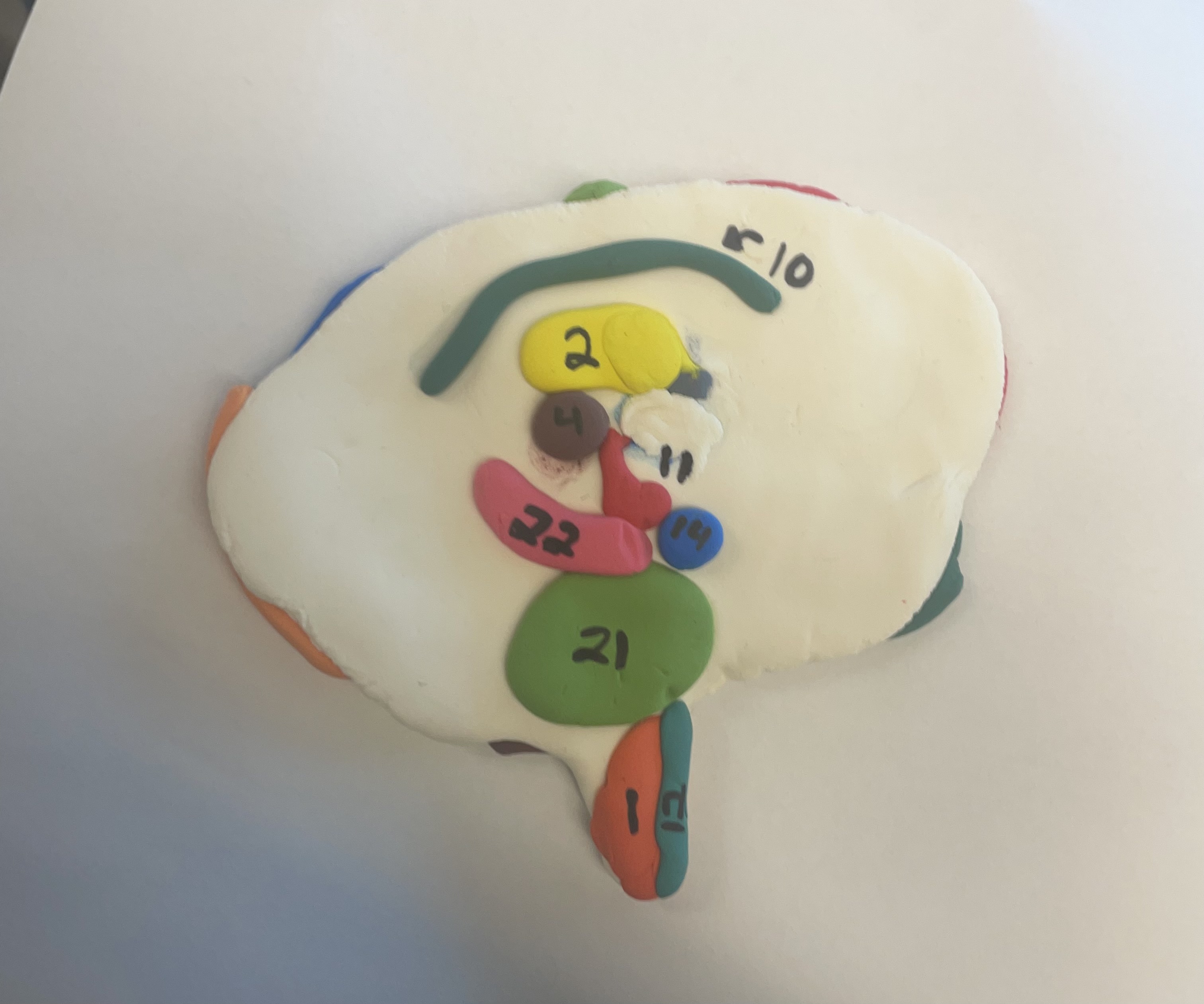
Pituitary Gland
Regulates growth and controls other endocrine glands
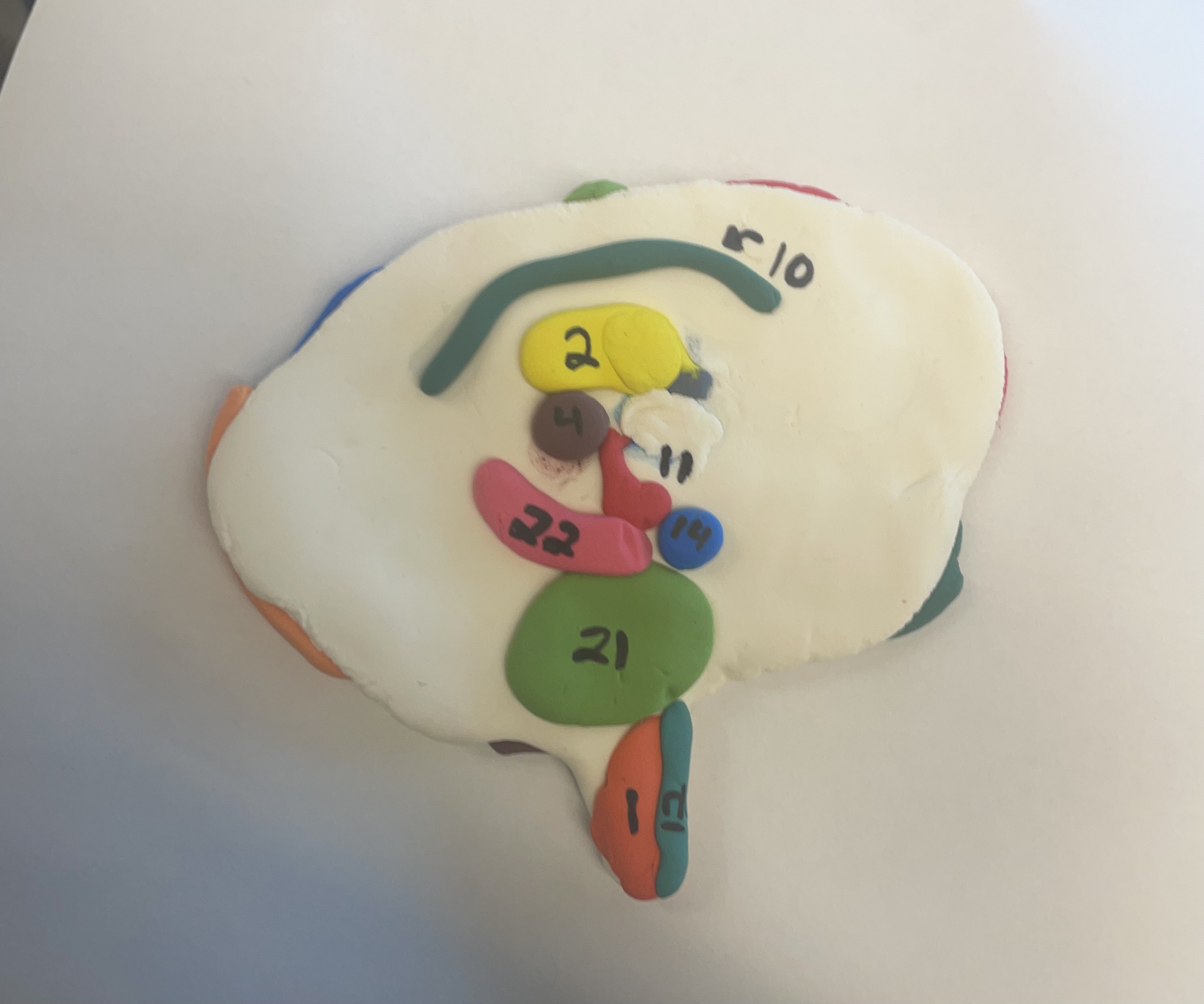
Reticular Formation
12
Reticular Formation
plays an important role in controlling arousal and pain sensation, alertness, fatigue, sleep and motivation
filters incoming stimuli and relays important information to other brain areas
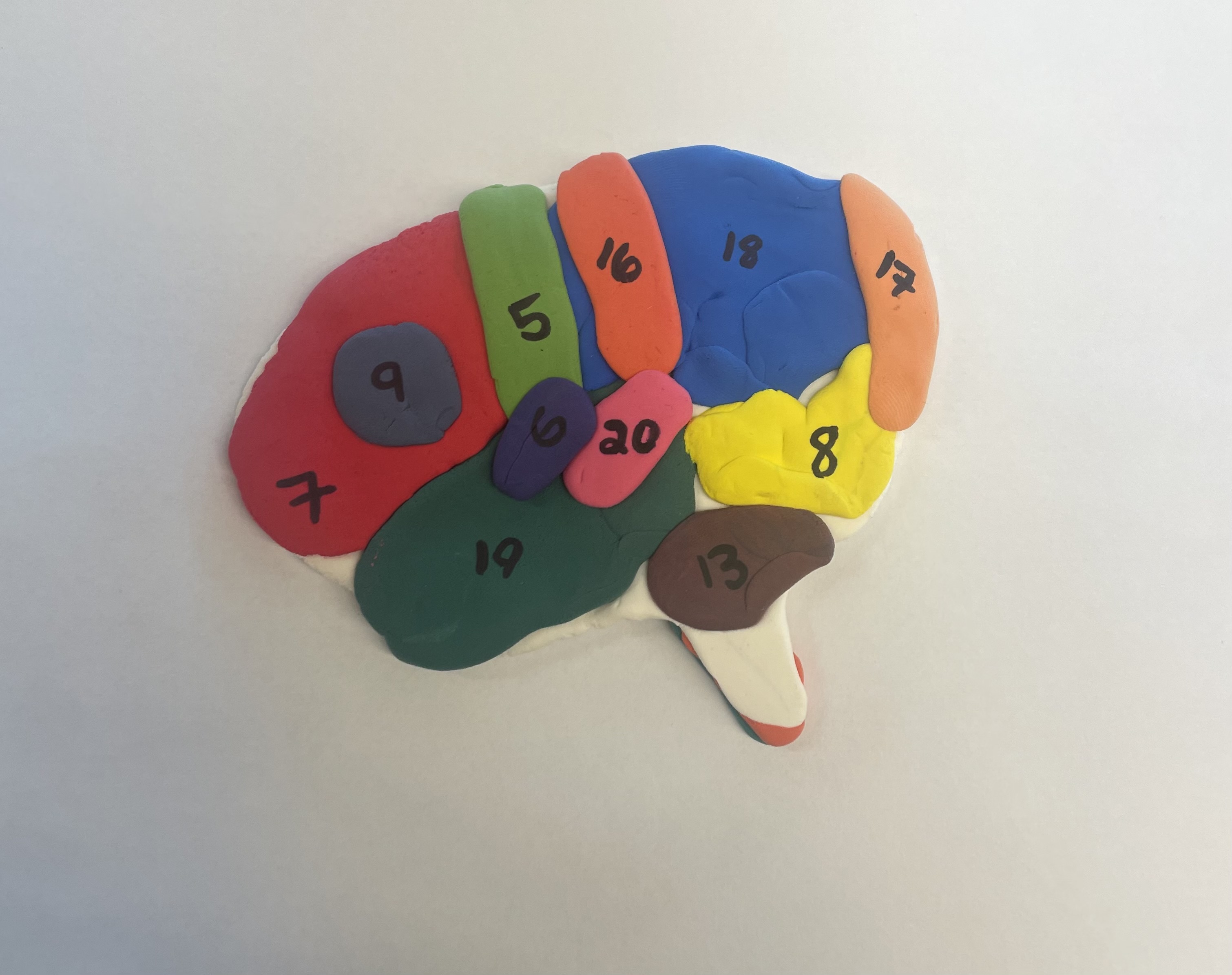
Cerebellum
13
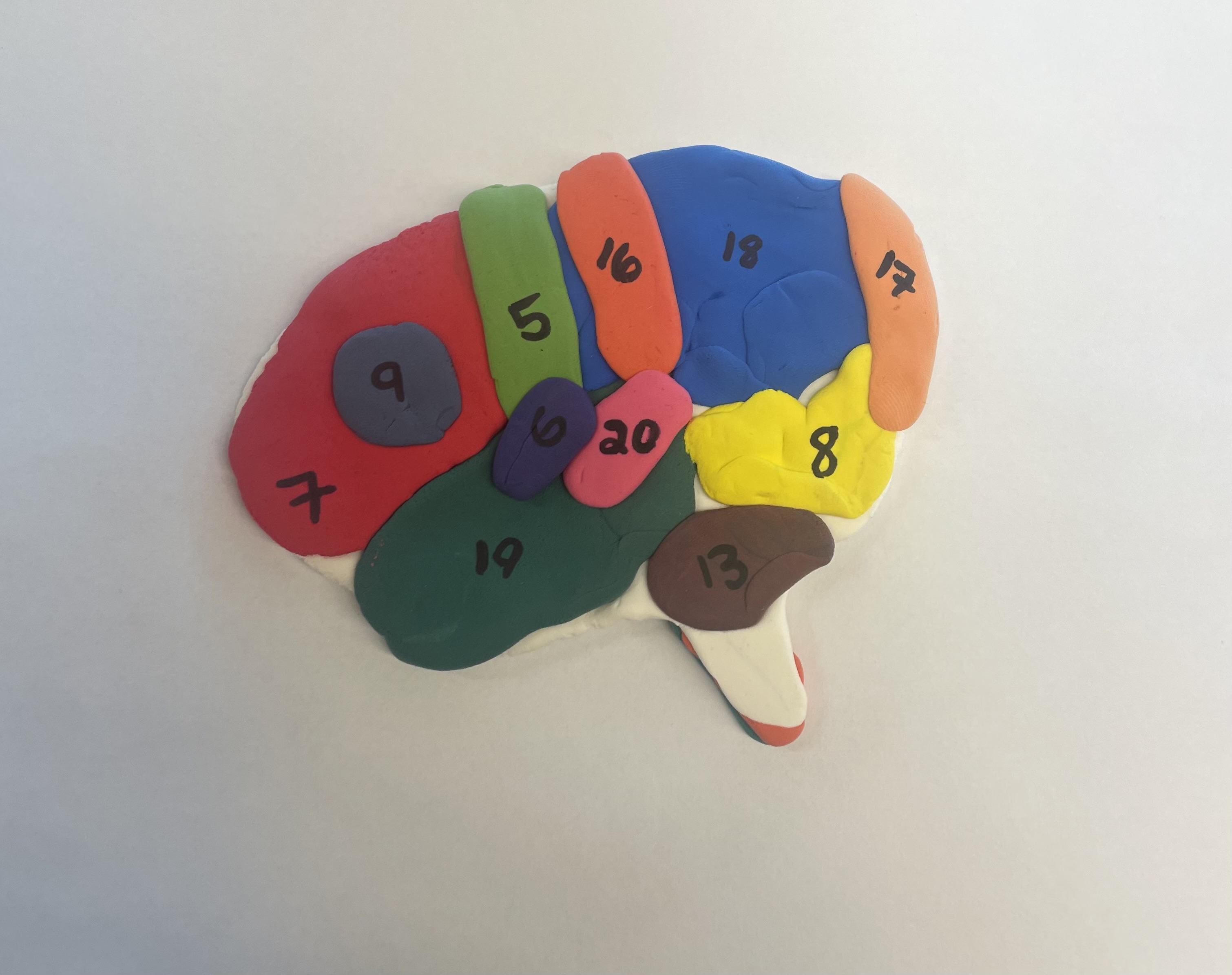
Cerebellum
processes sensory input, coordinates movement output and balance, and enables nonverbal learning and memory
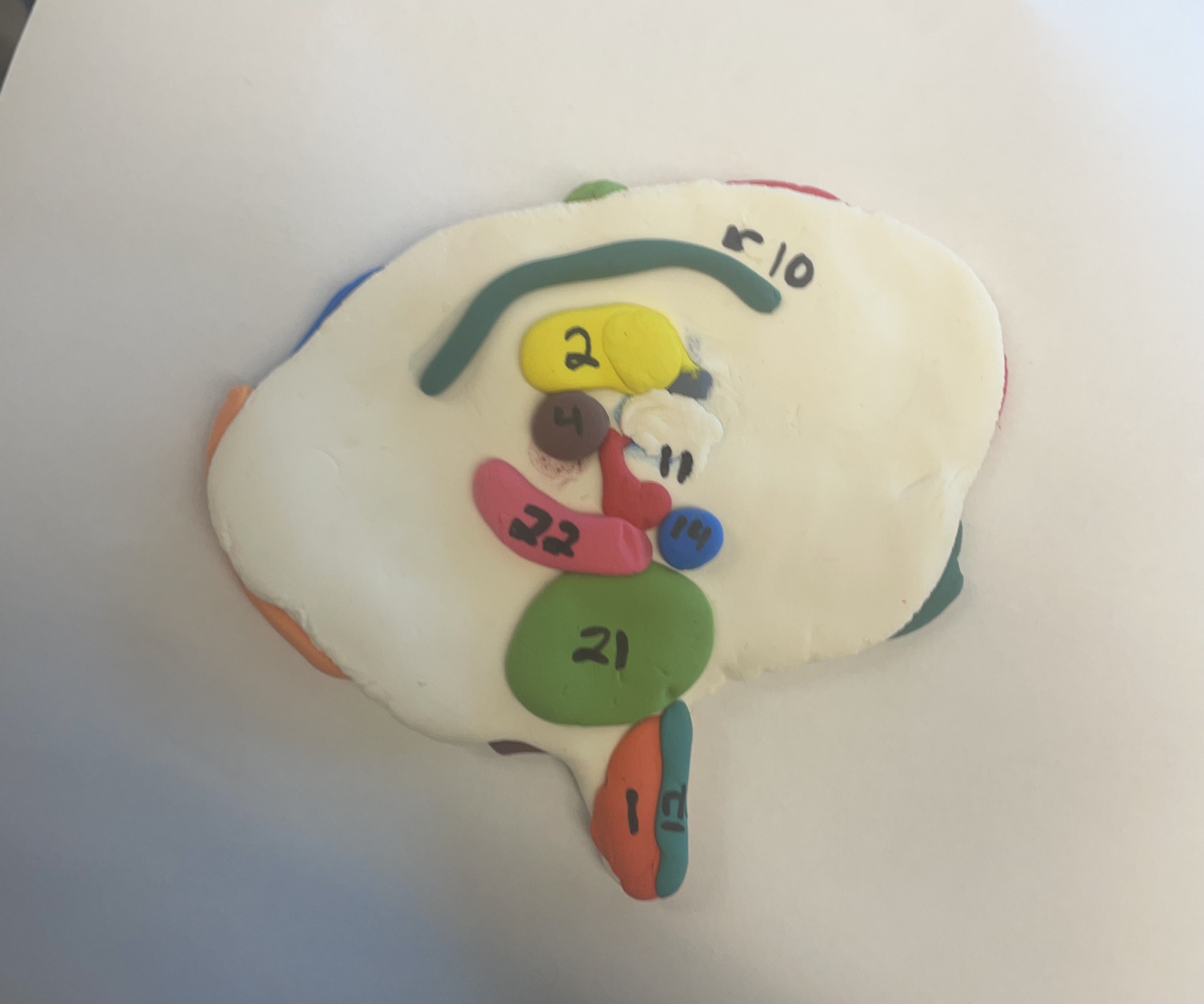
Amygdala
14
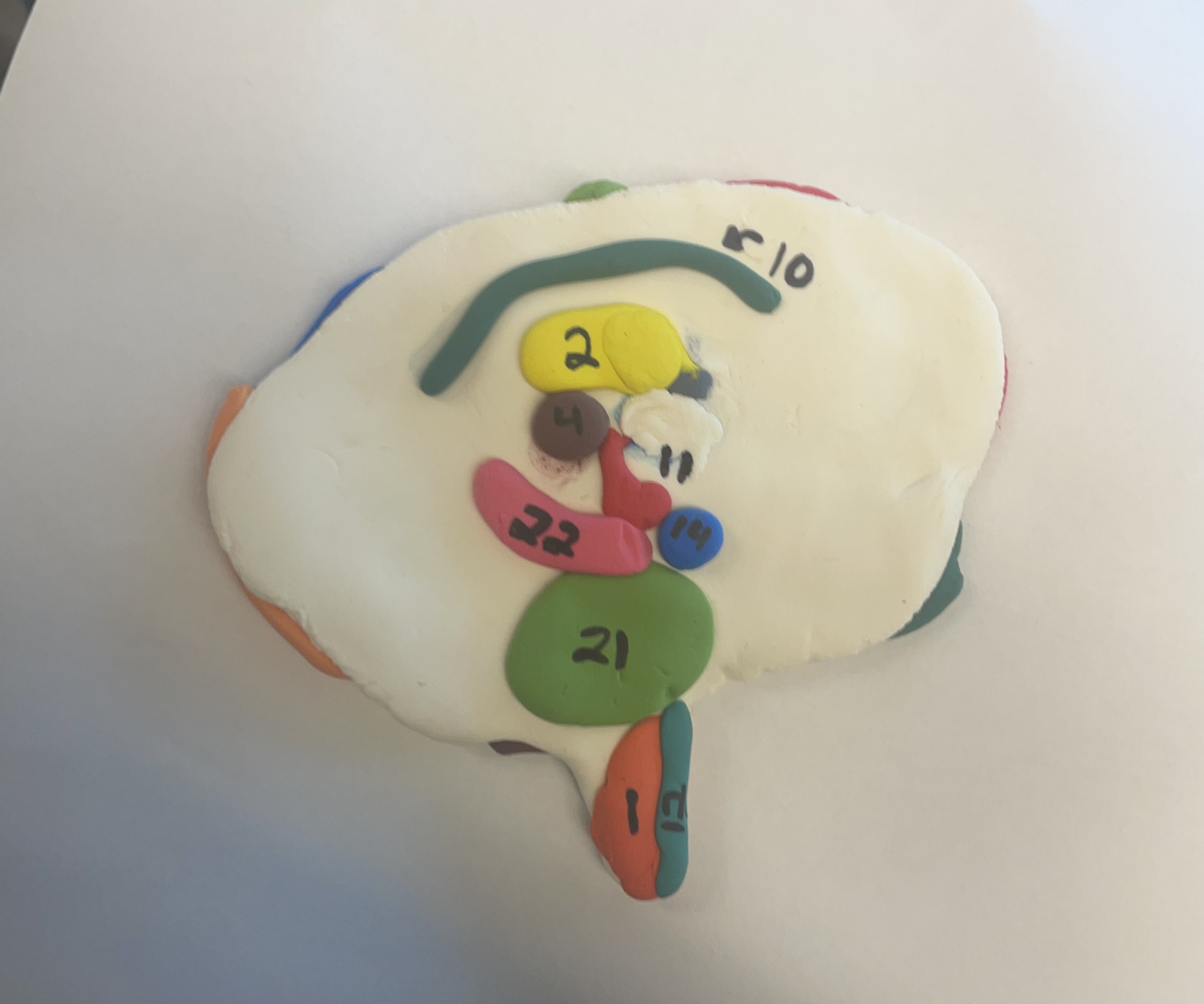
Amygdala
processing center for emotions
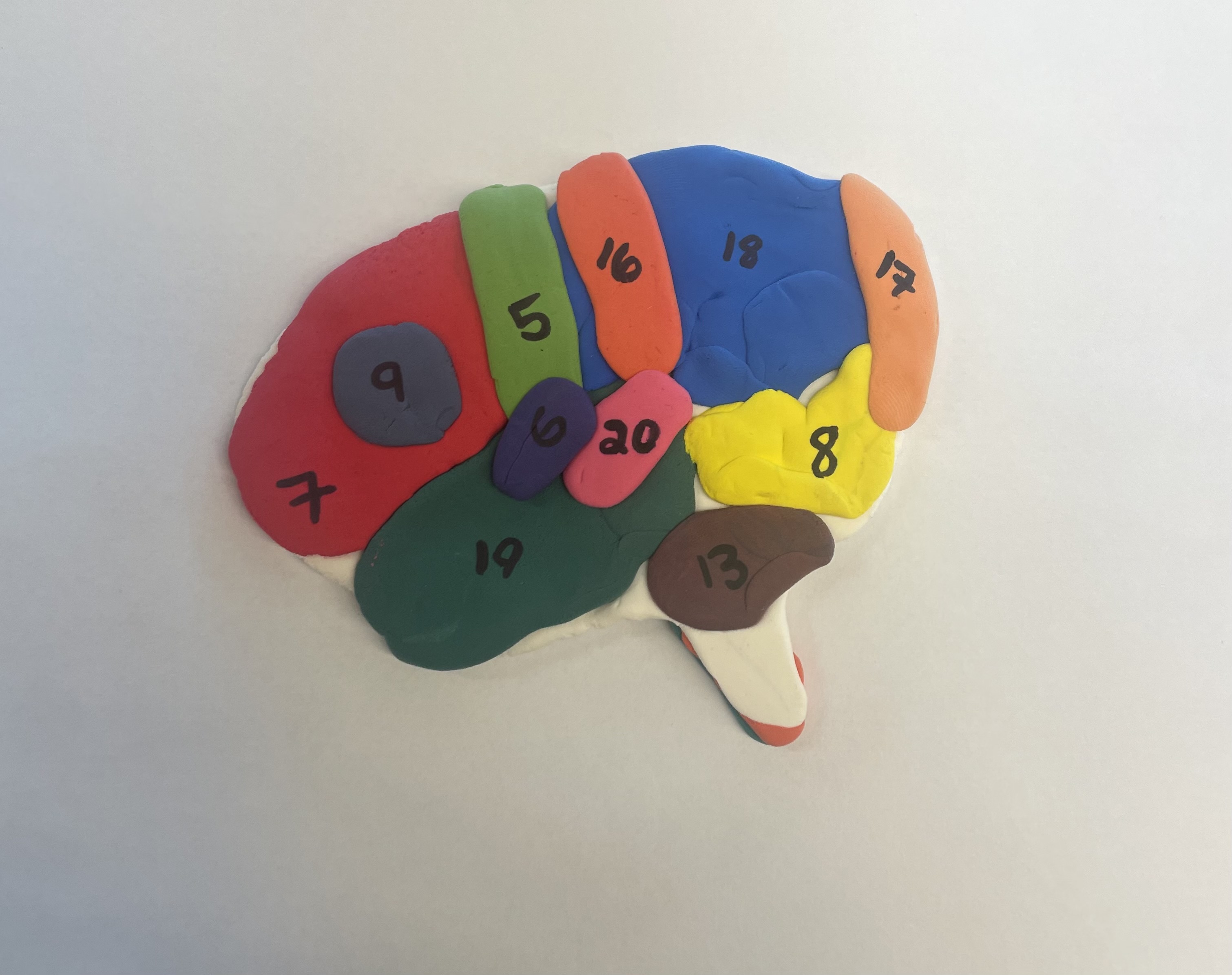
Cerebral Cortex
7 - Frontal Lobe
19 - Temporal Lobe
18 - Parietal Lobe
8 - Occipital Lobe
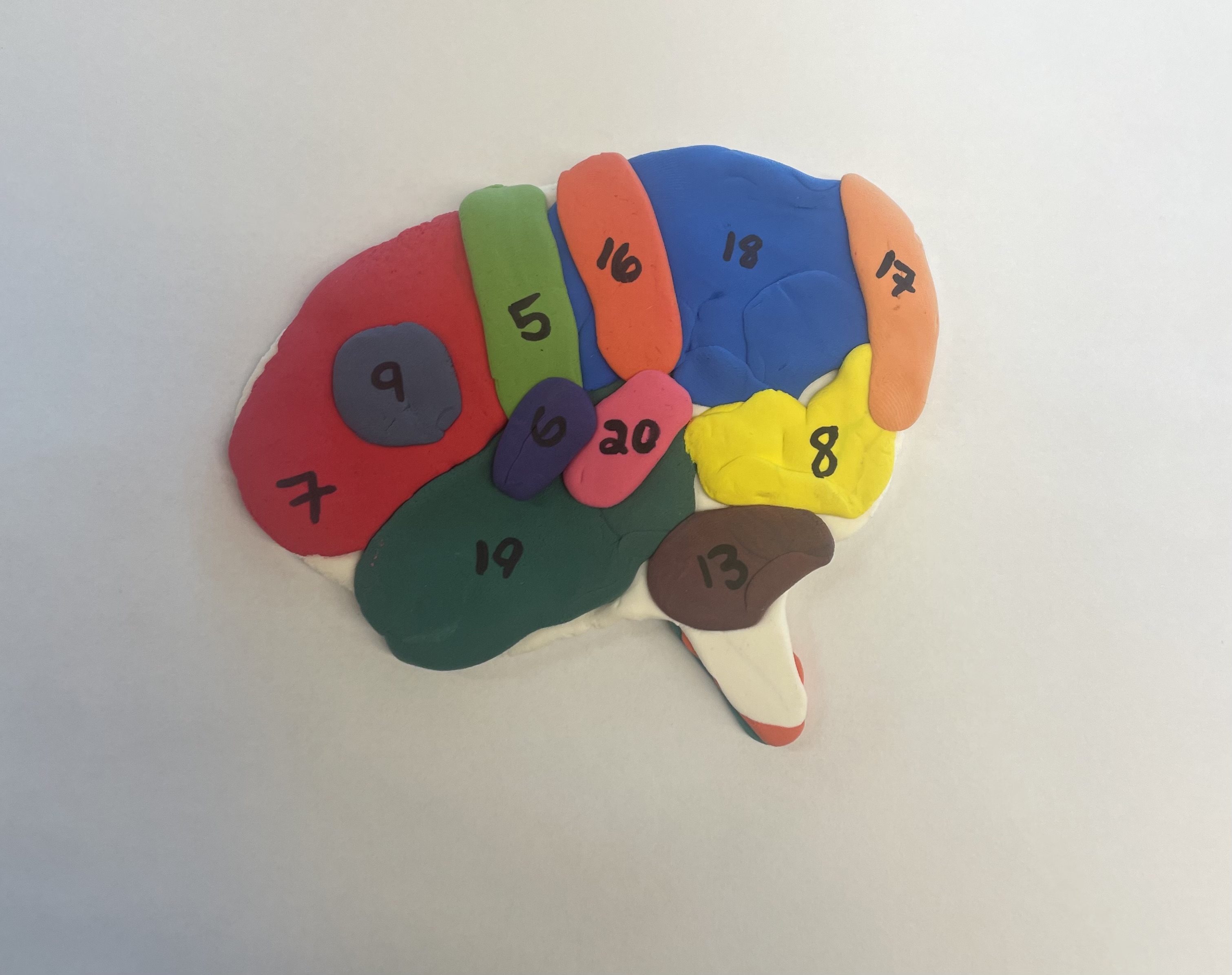
Cerebral Cortex
memory, thinking, learning, reasoning, problem-solving, emotions, consciousness, and functions related to senses
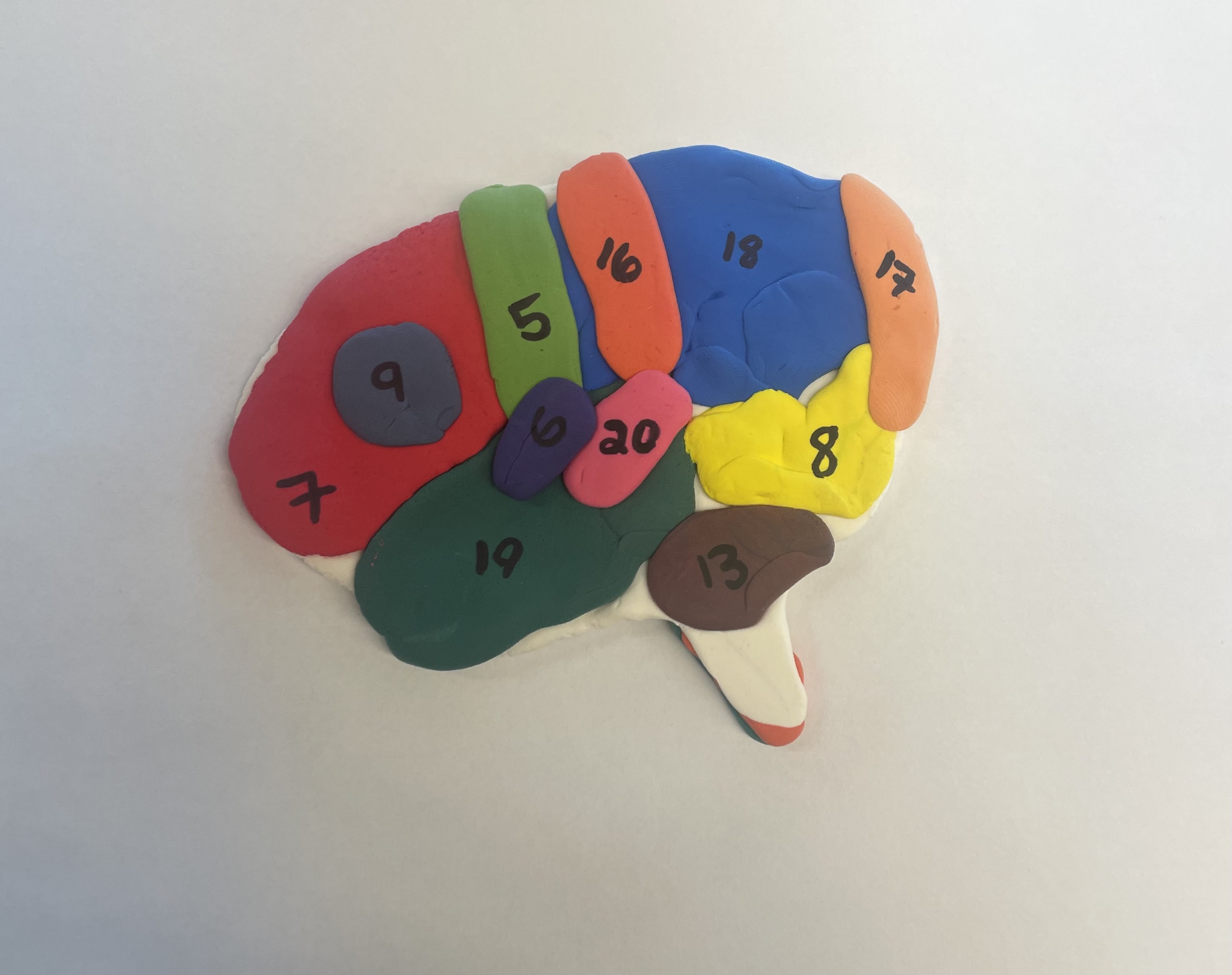
Sensory Cortex
16
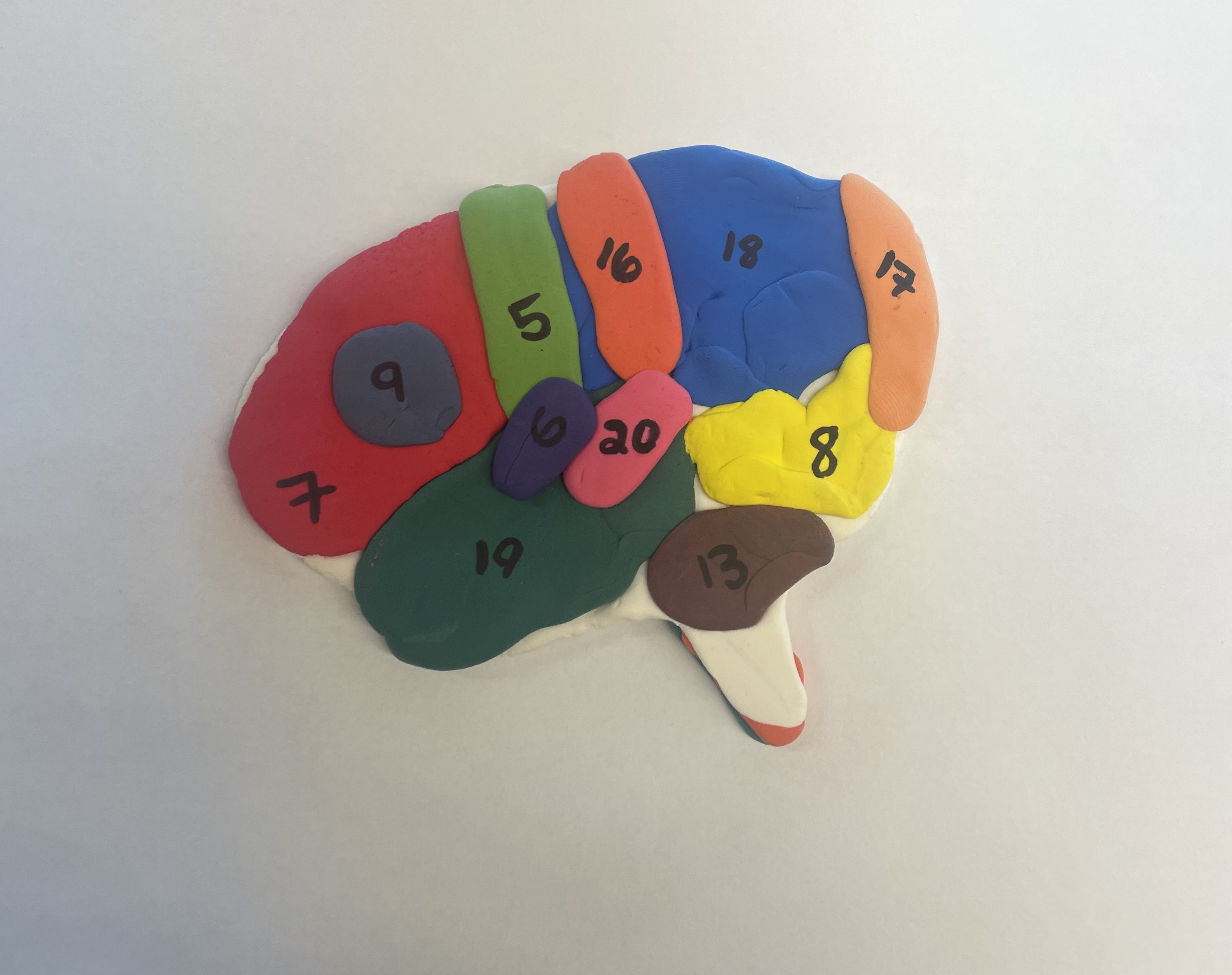
Sensory Cortex
Registers and processes sight, sound, smell, taste, and touch sensations
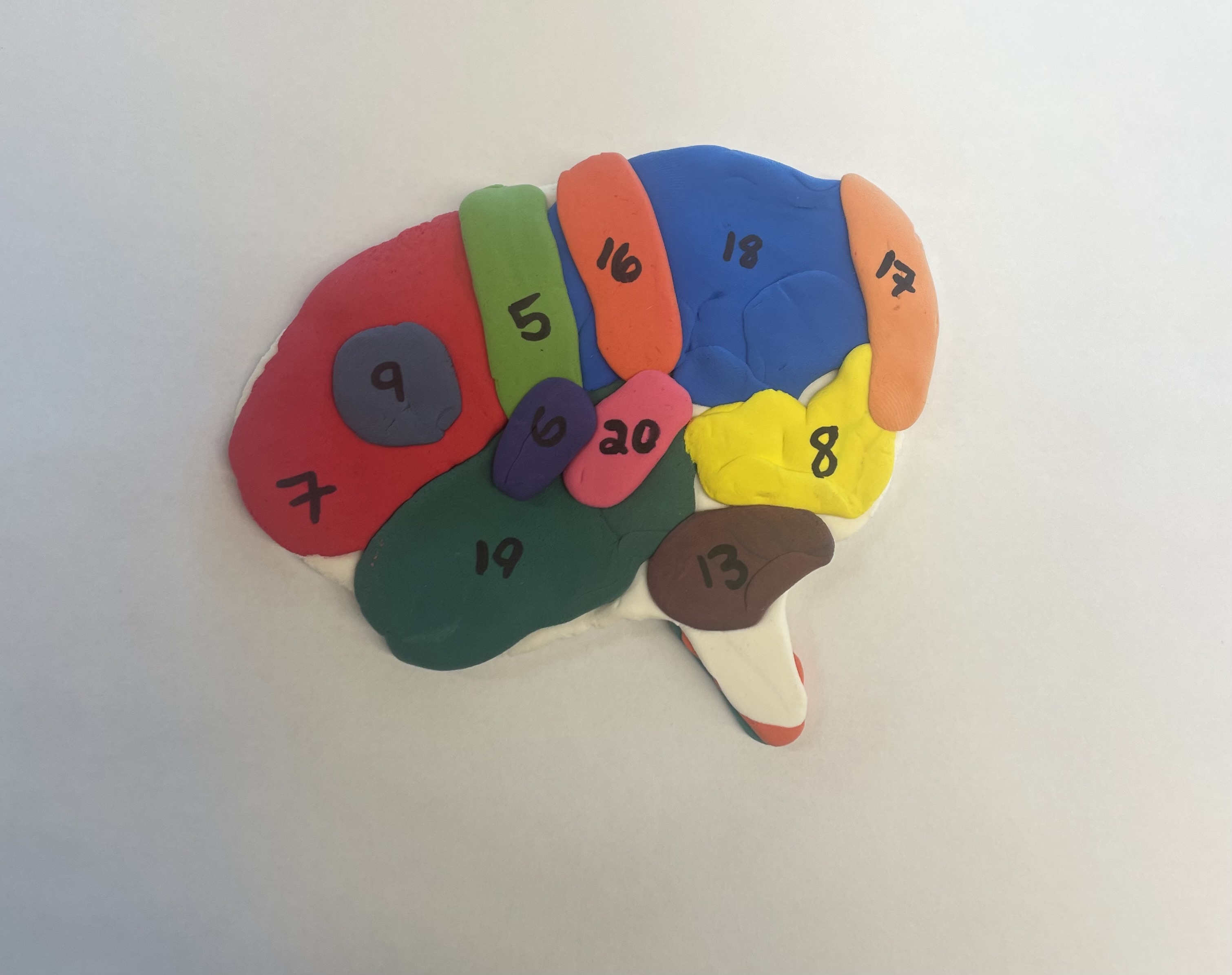
Visual Cortex
17
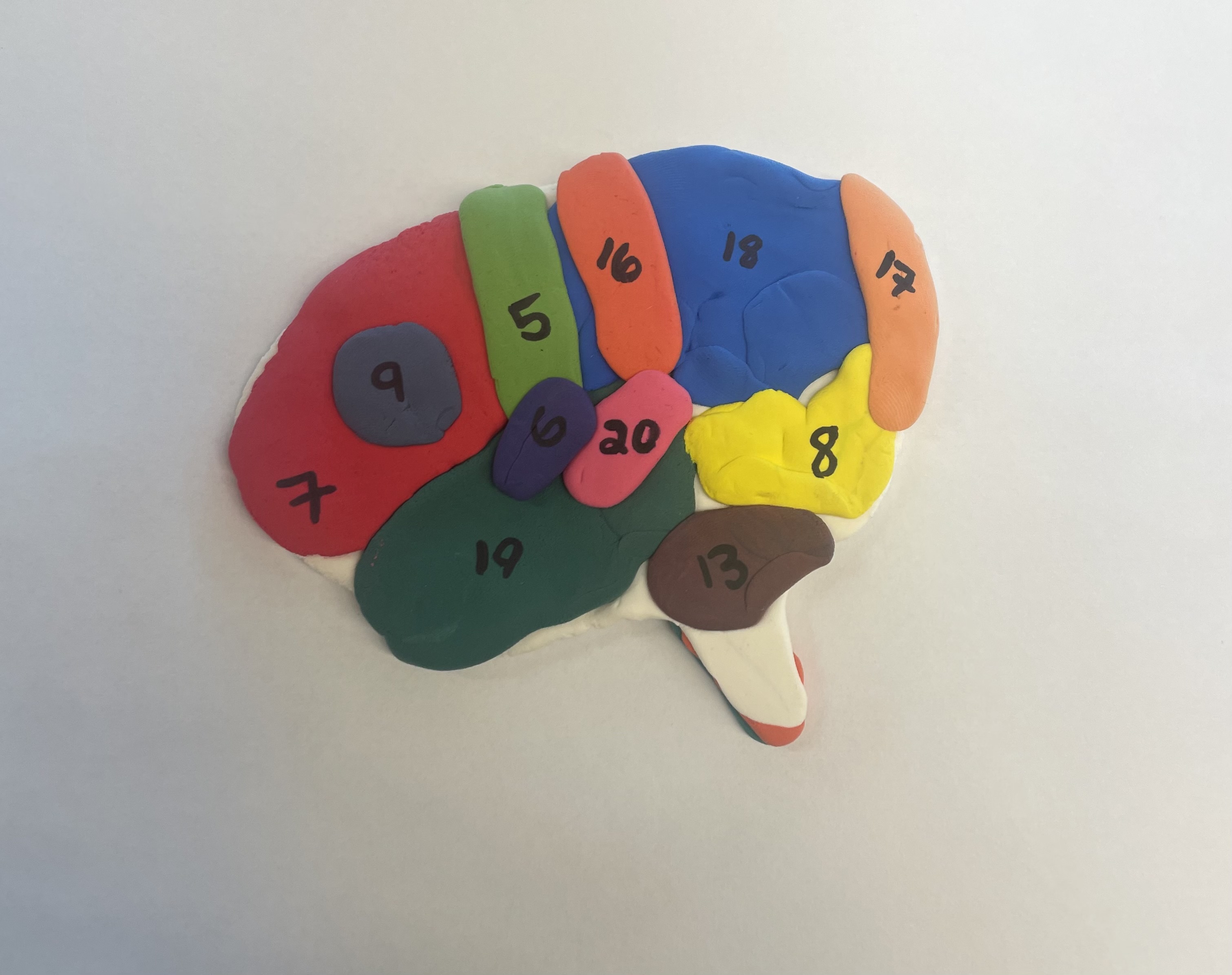
Visual Cortex
receives, segments, and integrates visual information
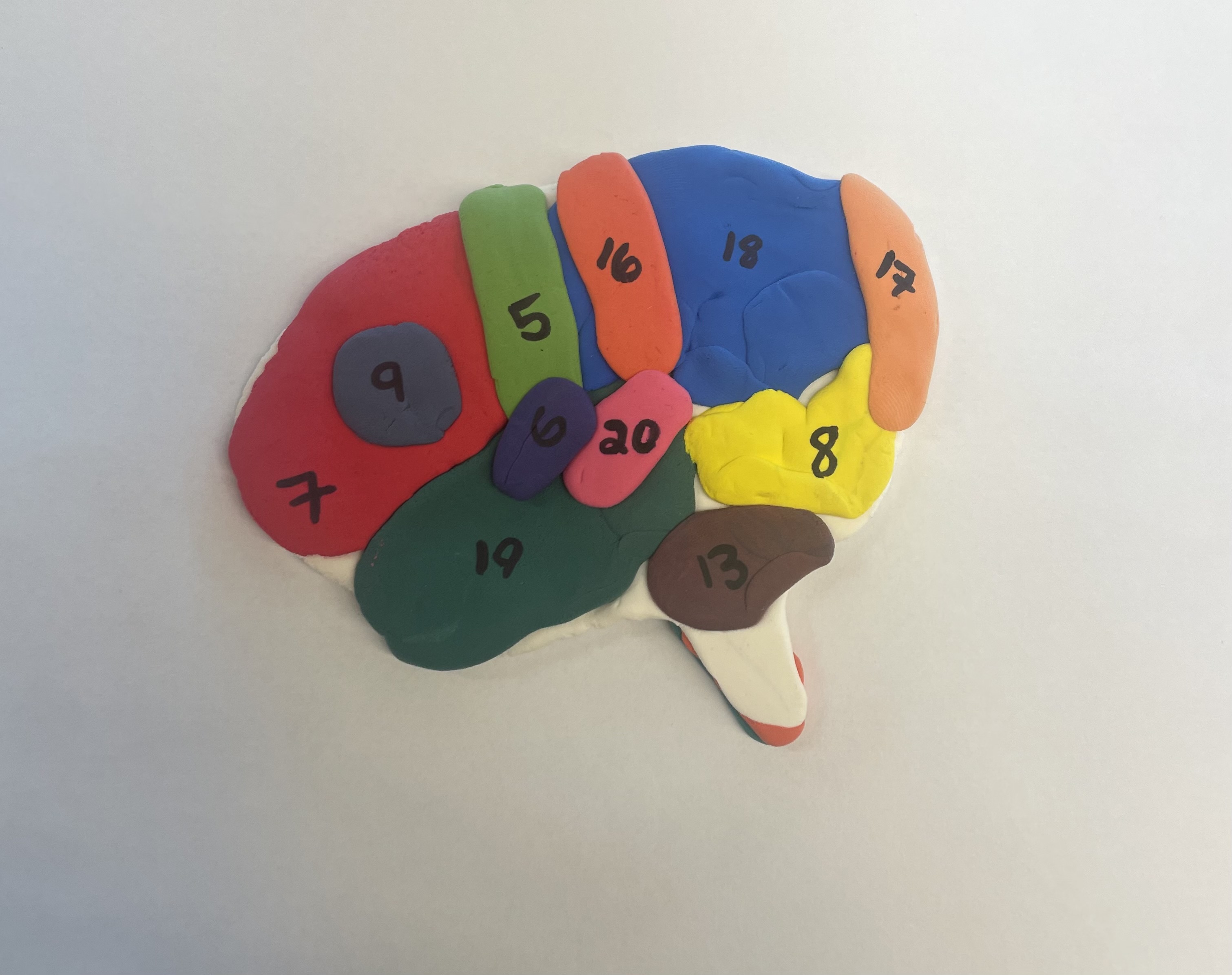
Parietal Lobe
18
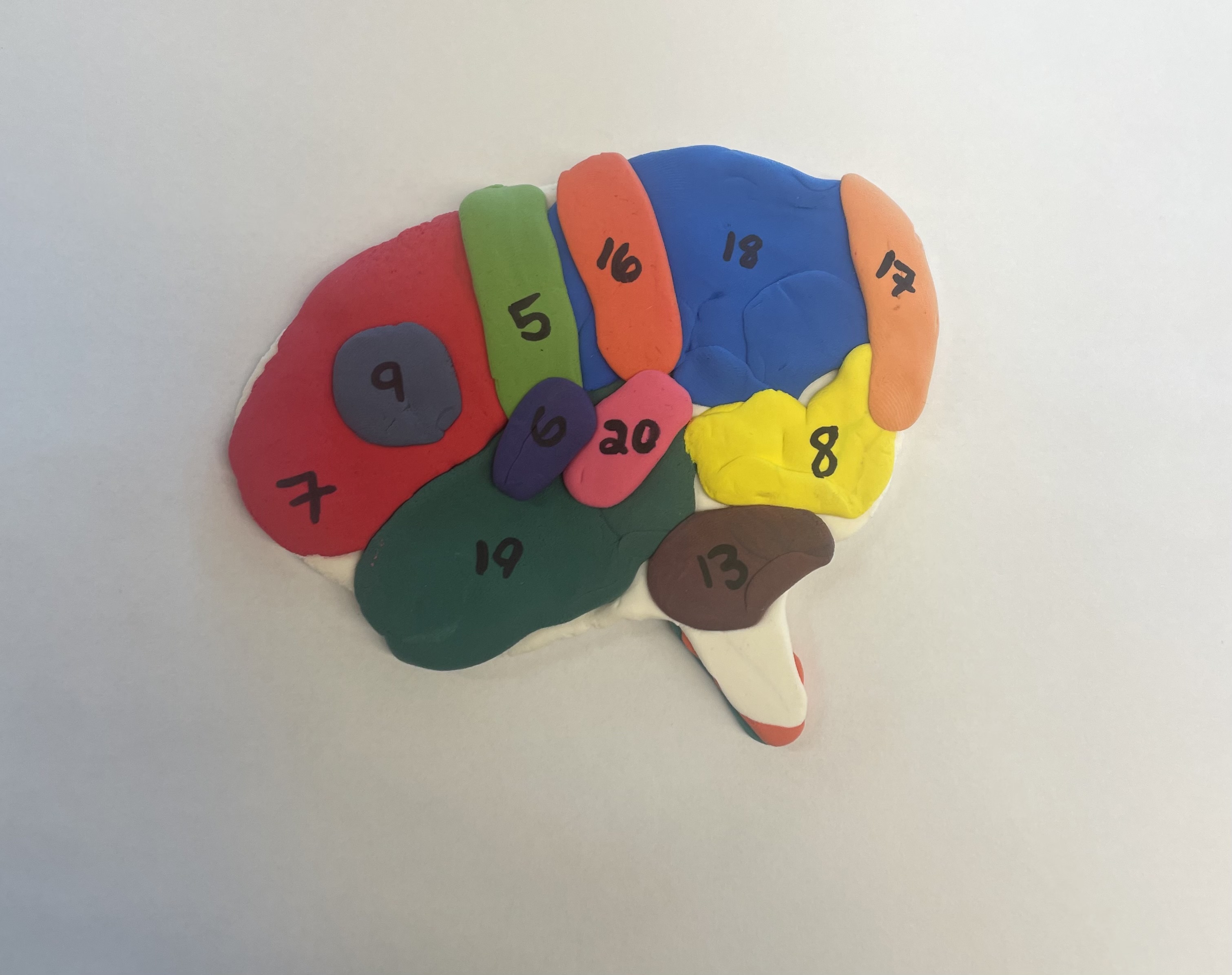
Parietal Lobe
sensory perception and integration for sight, smell, sound, taste and touch perceptions
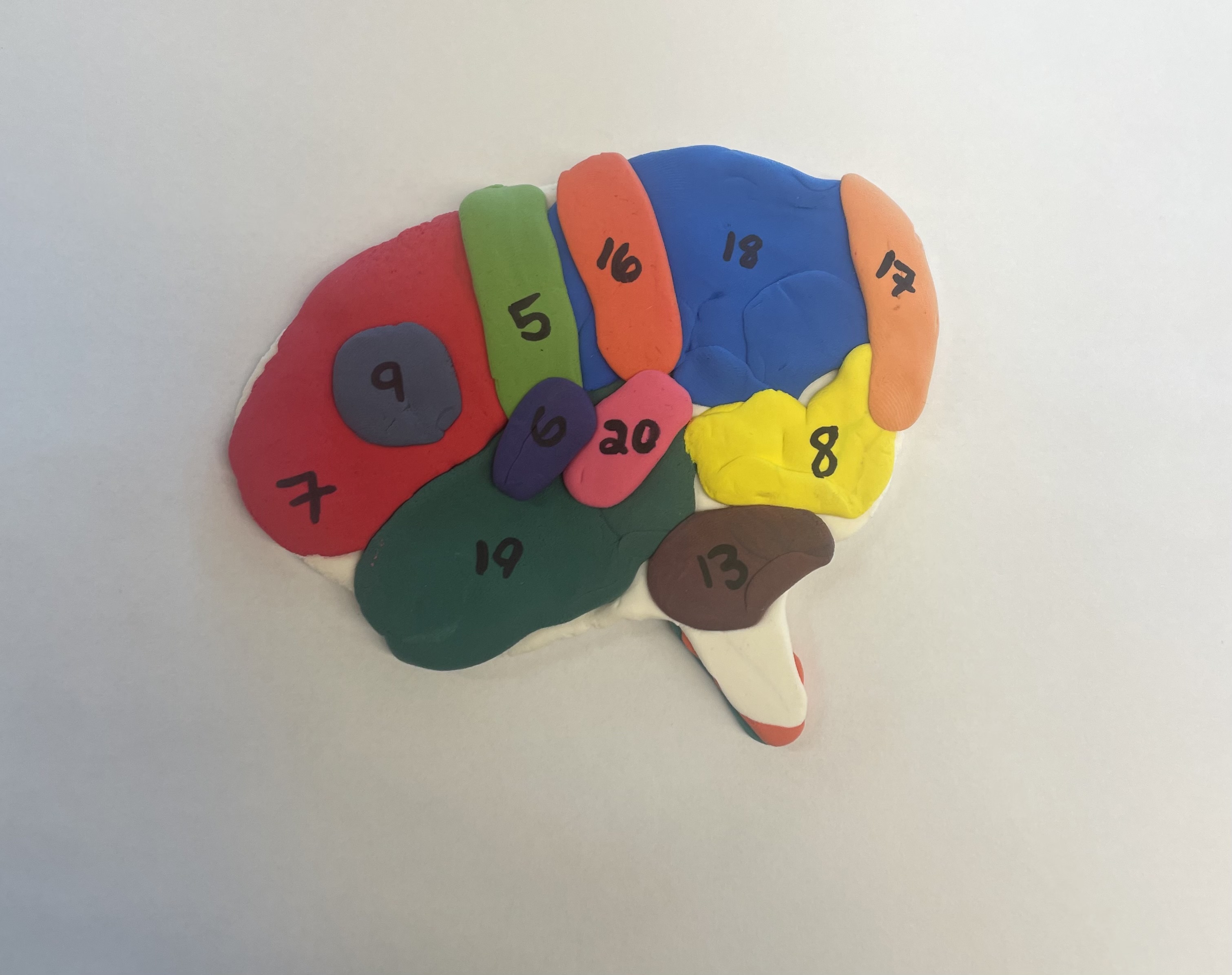
Temporal Lobe
19
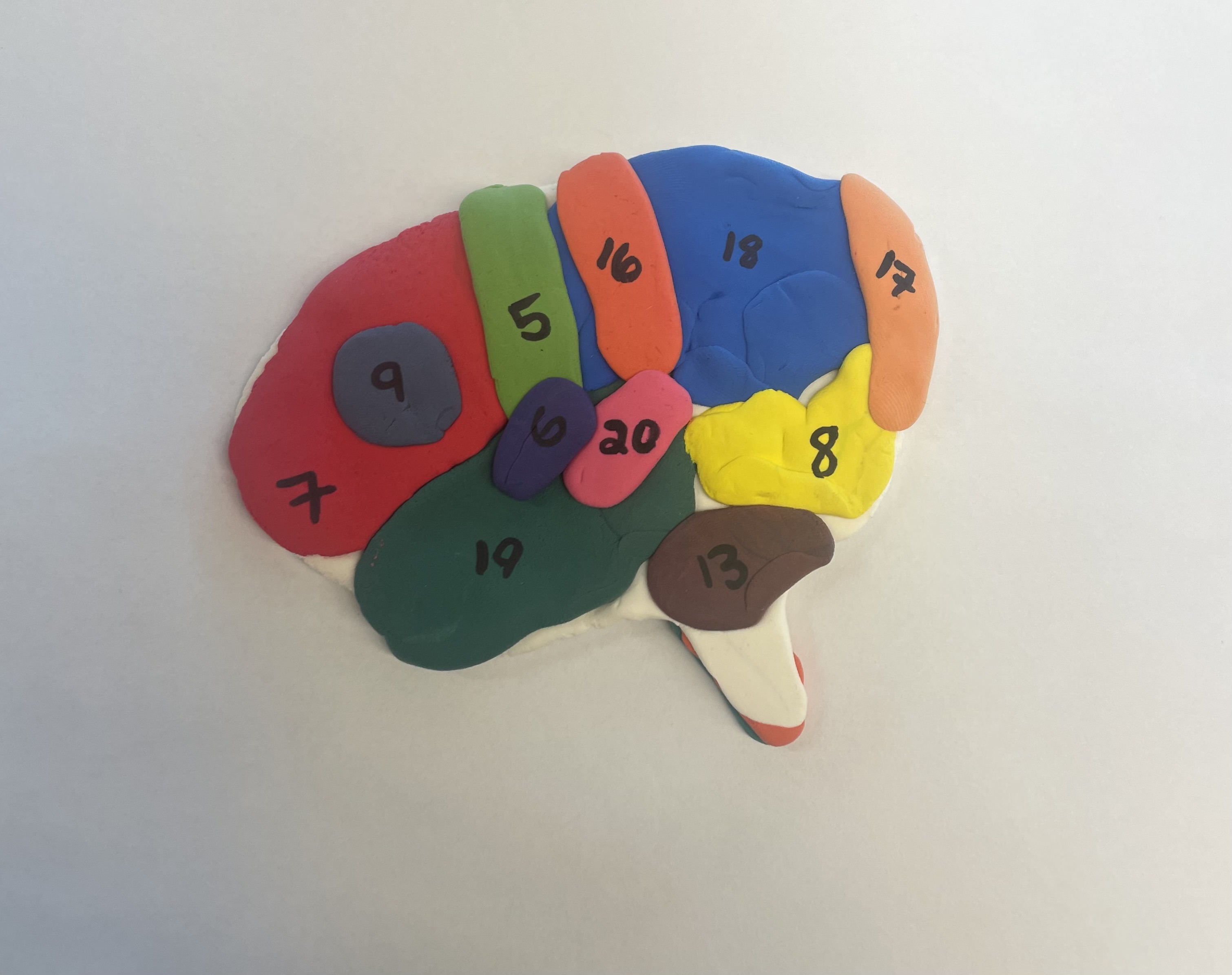
Temporal Lobe
processing auditory information, accesses memories, uses language and processes emotions
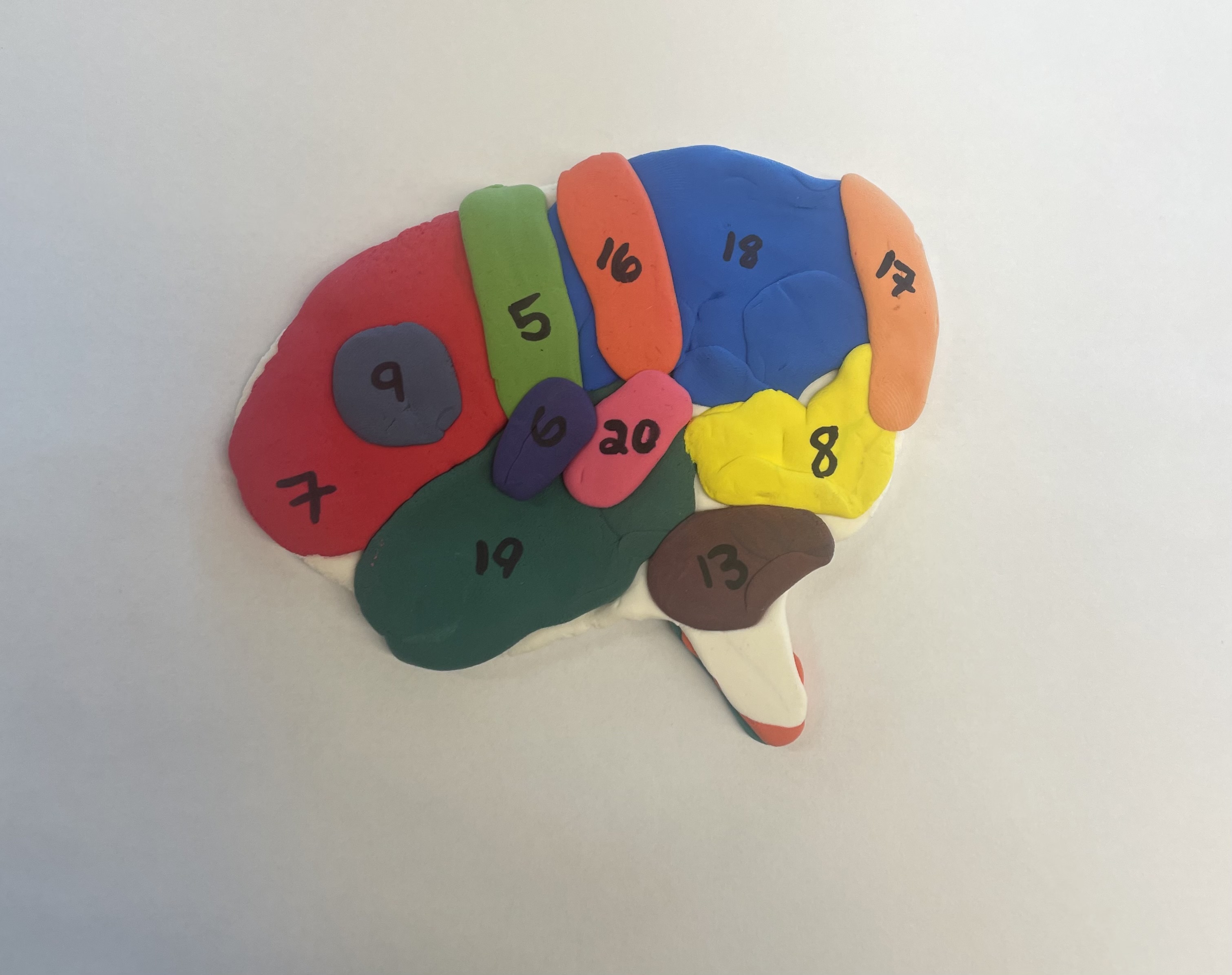
Wernicke’s Area
20
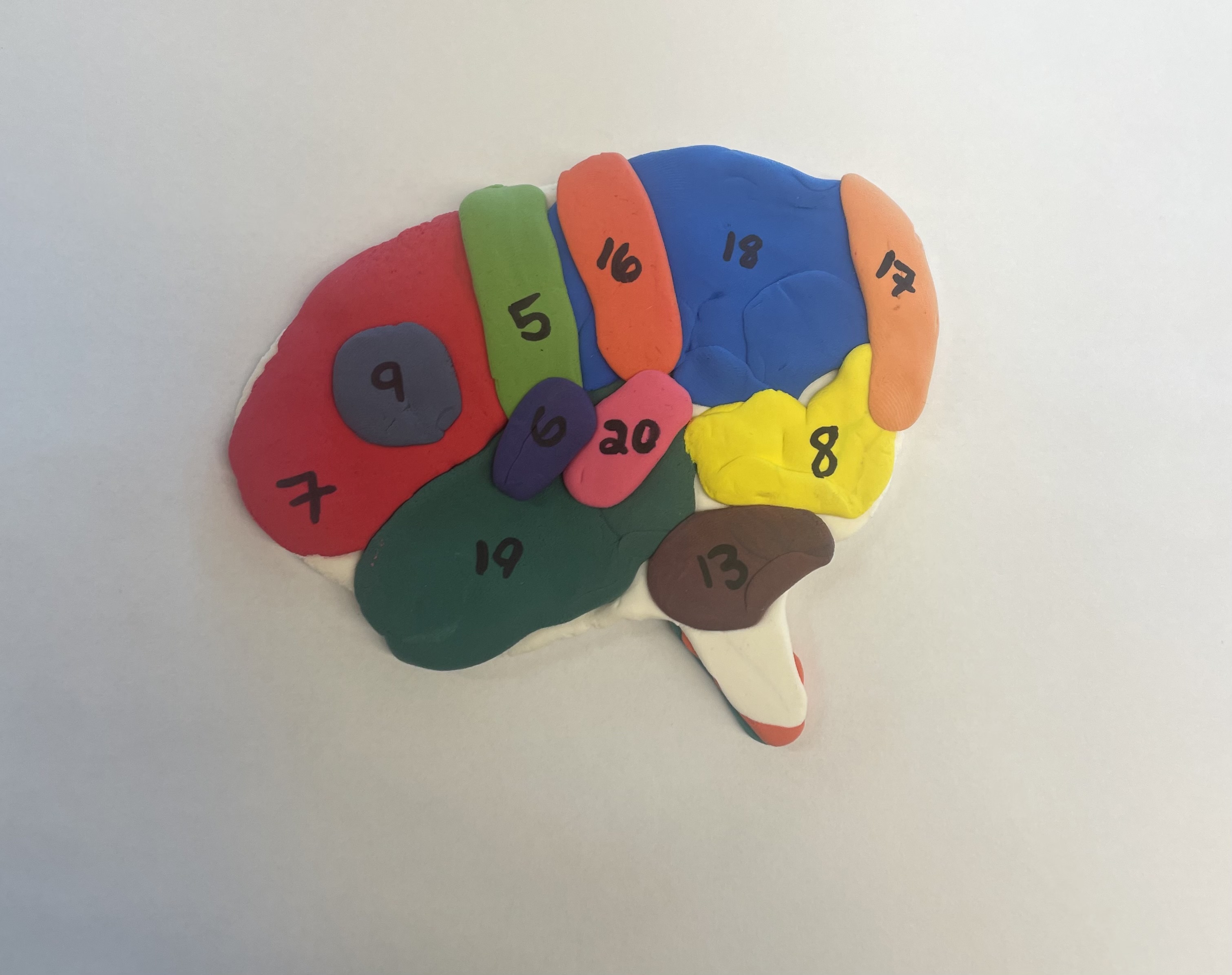
Wernicke’s Area
controls language reception, comprehension and expression
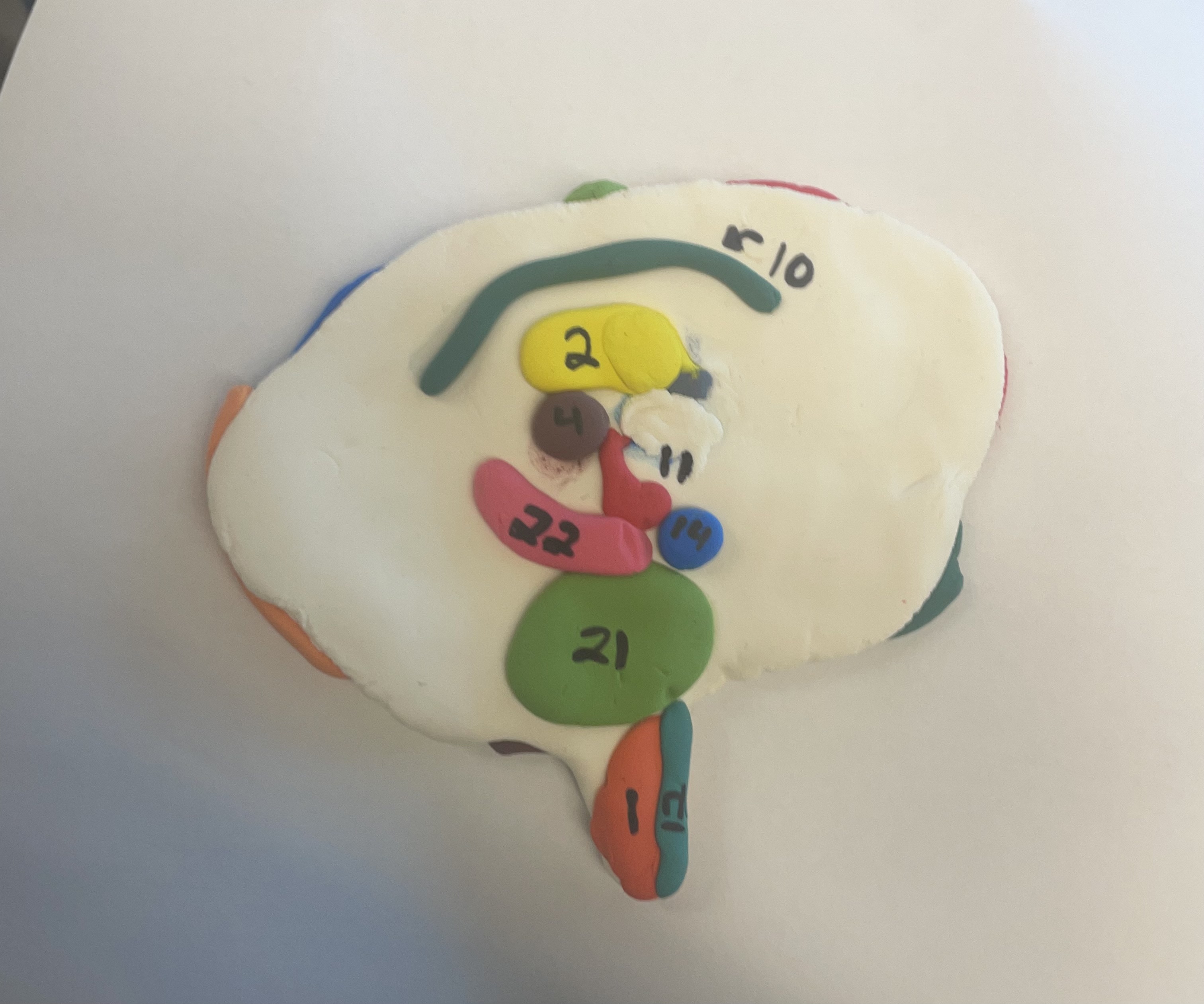
Pons
21
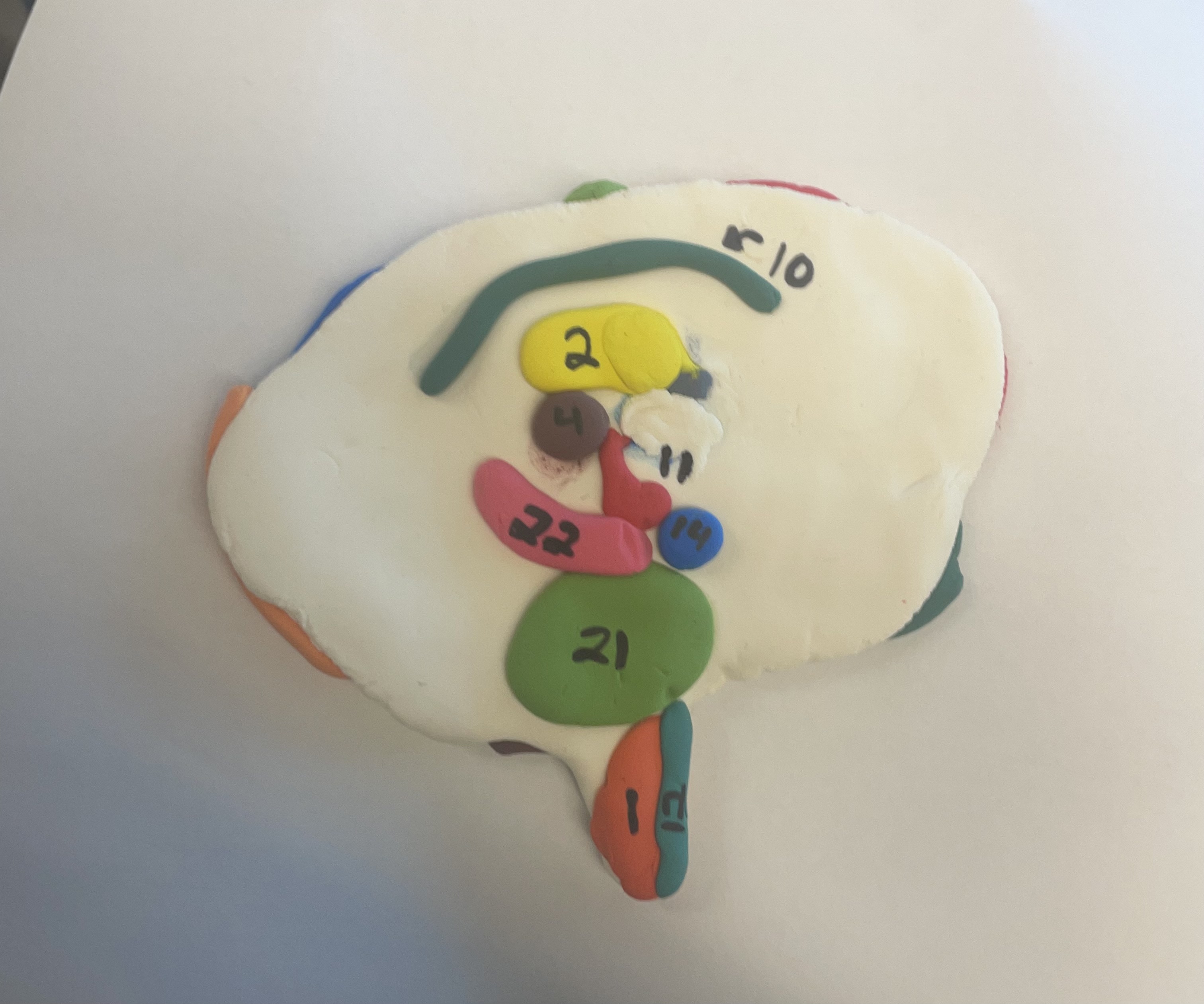
Pons
handles unconscious processes (Ex. sleep wake cycle, breathing)
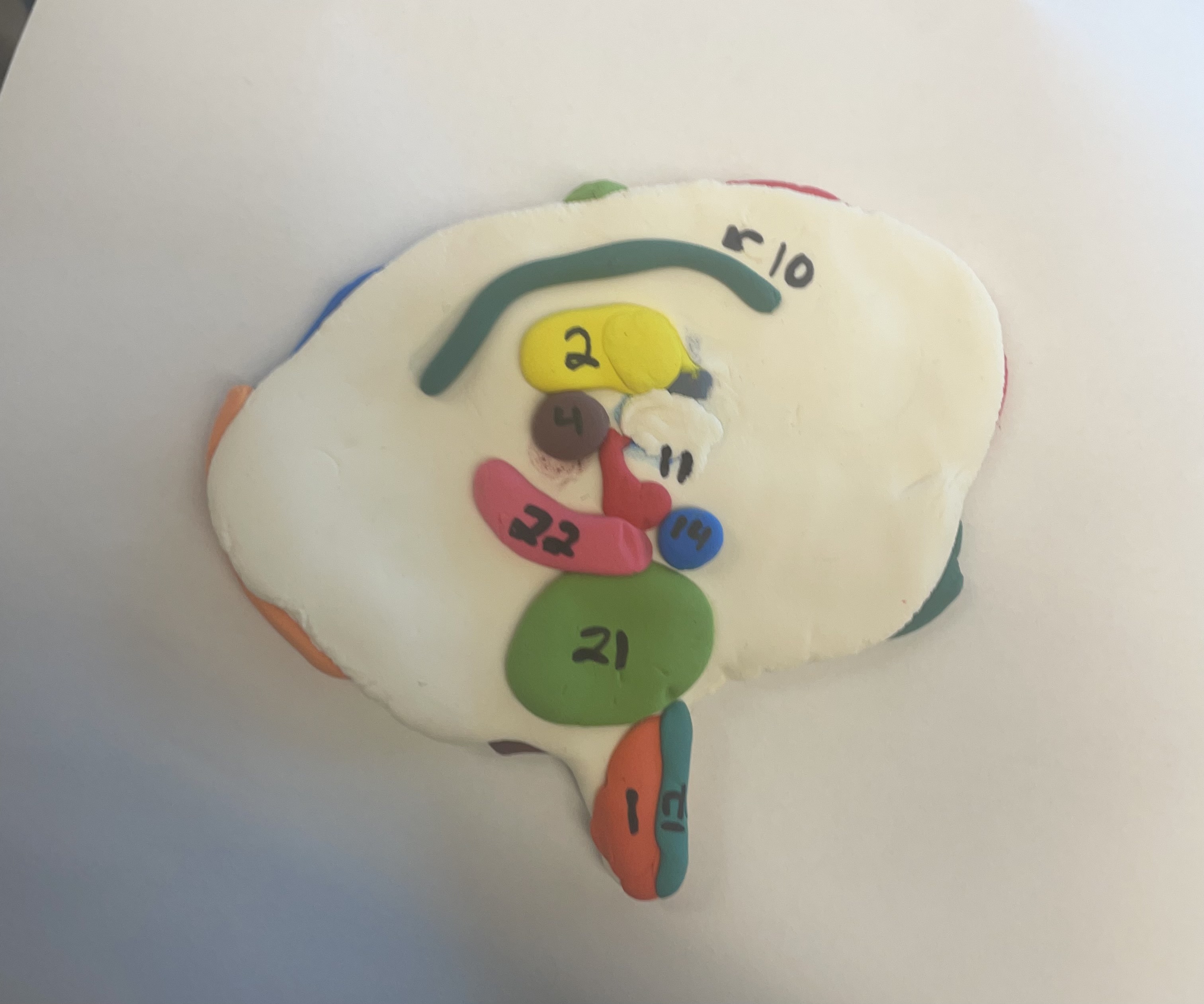
Hippocampus
22
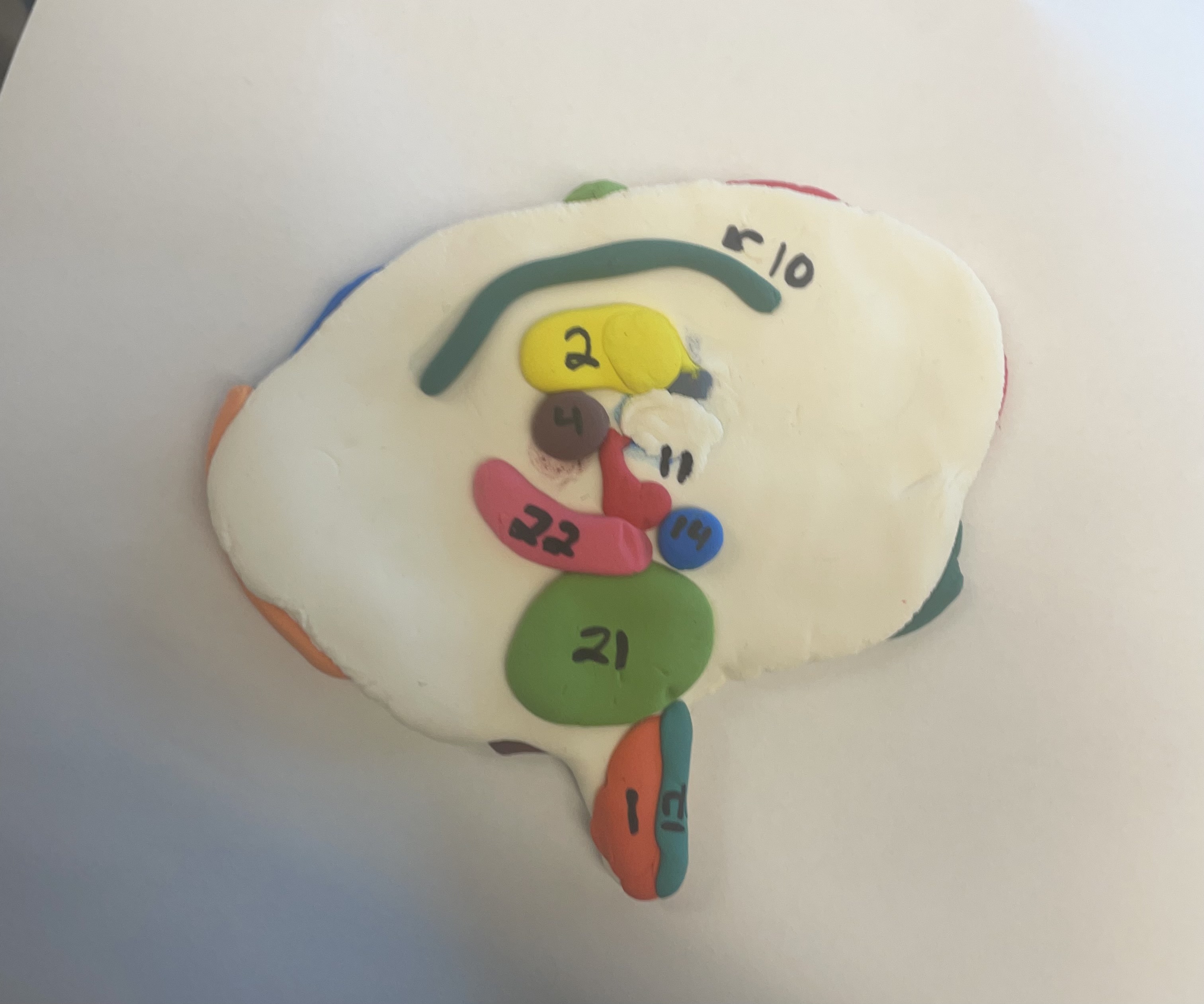
Hippocampus
helps process explicit memories for storage
involved in memory, learning and emotions